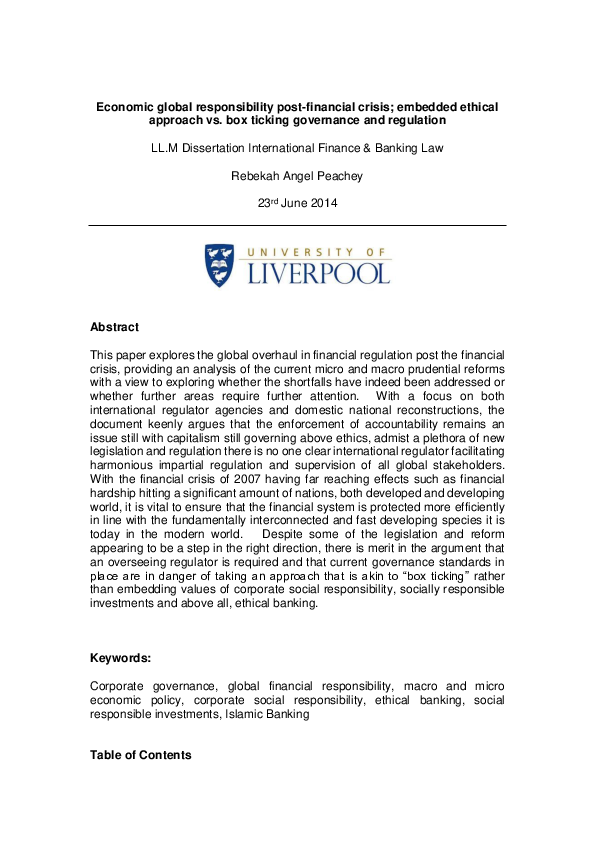Law Thesis Topics

This page provides a comprehensive list of law thesis topics , designed to assist students in navigating the broad and intricate field of legal studies. Choosing the right thesis topic is crucial for every law student, as it not only contributes to their academic success but also helps in shaping their future career paths. The list encompasses a wide range of specialized areas within the law, including but not limited to administrative law, corporate law, criminal justice, and human rights law. Each category is rich with potential research questions that reflect current challenges and emerging trends in the legal landscape. This resource aims to inspire and support students by providing them with a vast array of topics, thereby facilitating an informed and focused approach to their thesis writing endeavors.

1000 Law Thesis Topics and Ideas

Academic Writing, Editing, Proofreading, And Problem Solving Services
Get 10% off with 24start discount code, browse law thesis topics:, administrative law thesis topics, banking and finance law thesis topics, commercial law thesis topics, competition law thesis topics, constitutional law thesis topics, contract law thesis topics, corporate law thesis topics, criminal law thesis topics, cyber law thesis topics, environmental law thesis topics, european union law thesis topics, family law thesis topics, health law thesis topics, human rights law thesis topics, immigration law thesis topics, intellectual property law thesis topics, international law thesis topics, labor law thesis topics, legal ethics thesis topics, maritime law thesis topics, media law thesis topics, property law thesis topics, public international law thesis topics, sports law thesis topics, tax law thesis topics.
- The impact of administrative reforms on government efficiency in the 21st century.
- Examining the role of public consultation in administrative decision-making processes.
- The effectiveness of ombudsman institutions in resolving public grievances: A comparative study.
- Legal challenges in implementing electronic governance and digitalization of administrative services.
- The influence of political change on administrative law reforms.
- Judicial review of administrative actions: Balancing government discretion and citizen rights.
- The evolution of administrative law under the pressure of emergency health responses (e.g., COVID-19).
- Privacy rights versus state security: Where should the line be drawn in administrative policies?
- The role of administrative law in combating climate change: Case studies from around the world.
- The effectiveness of administrative penalties in regulating corporate behavior.
- Transparency and accountability in public procurement processes.
- Comparative analysis of administrative law systems in federal and unitary states.
- The role of administrative law in shaping public health policies.
- Administrative law and its impact on minority rights protections.
- The challenge of maintaining administrative justice in times of political instability.
- Legal mechanisms for citizen participation in the administrative rule-making process.
- The future of administrative litigation: Trends and predictions.
- Impact of international law on national administrative law procedures.
- Administrative law’s response to socio-economic disparities.
- The use of artificial intelligence in administrative decision-making: Legal and ethical implications.
- Balancing efficiency and fairness in administrative adjudication.
- The role of administrative agencies in environmental conservation.
- Regulatory challenges in the administration of emerging technologies.
- The impact of globalization on national administrative law practices.
- Administrative law as a tool for social reform.
- Corruption and administrative law: Safeguards and pitfalls.
- Administrative discretion and its limits in democratic societies.
- The intersection of administrative law and human rights.
- The administrative burden of tax law enforcement and compliance.
- Public access to information: Evaluating legal frameworks in different jurisdictions.
- The role of whistleblowers in the administrative state: Protection versus persecution.
- Outsourcing government services: Legal ramifications and oversight.
- Legal standards for emergency powers of administrative agencies.
- Administrative law and the management of public lands.
- Challenges in regulatory enforcement against multinational corporations.
- The impact of administrative decisions on small businesses.
- Legal remedies for administrative injustices: Are they sufficient?
- The influence of lobbying on administrative rule-making.
- The role of the judiciary in shaping administrative law.
- The future of public administration: Predicting changes in law and policy.
- The legal implications of blockchain technology in banking and finance.
- An analysis of regulatory approaches to cryptocurrency in major global economies.
- The role of law in preventing financial crises: Lessons learned from past financial collapses.
- Legal challenges in implementing digital currencies by central banks.
- Consumer protection in online banking: Evaluating current legal frameworks.
- The impact of Brexit on the banking and finance laws in the UK and EU.
- Regulatory responses to financial innovation: Balancing innovation and consumer protection.
- Legal strategies for combating money laundering in the international banking sector.
- The influence of international sanctions on banking and financial transactions.
- Legal issues surrounding the securitization of assets.
- The role of legal frameworks in fostering sustainable banking practices.
- The enforcement of banking regulations against systemic risk.
- Legal aspects of banking insolvencies and their impact on the global economy.
- The evolution of consumer credit laws and their impact on the banking industry.
- The effectiveness of anti-corruption regulations in the banking sector.
- Legal considerations in the management of cross-border banking operations.
- The regulation of shadow banking systems and their legal implications.
- Legal challenges faced by fintech companies in the banking sector.
- The role of law in addressing disparities in access to banking services.
- Legal frameworks for banking privacy and data protection in the age of digital banking.
- The impact of artificial intelligence on regulatory compliance in banking.
- Legal aspects of risk management in banking: Current practices and future directions.
- The legalities of banking for high-risk clients: Balancing business and regulatory requirements.
- The enforcement of Basel III standards in developing countries.
- Legal issues related to bank mergers and acquisitions.
- The regulation of international investment and its impact on banking laws.
- Legal challenges in microfinancing: Protecting both lenders and borrowers.
- The implications of non-performing loans on banking law and policy.
- Banking dispute resolution: The effectiveness of arbitration and mediation.
- The legal framework for Islamic banking and finance: Comparison with Western banking laws.
- The role of the judiciary in shaping banking laws and practices.
- The future of banking regulation: Predicting changes post-global pandemic.
- Legal frameworks governing venture capital and its role in economic development.
- Regulatory challenges in mobile and electronic payment systems.
- The impact of interest rate regulations on banking profitability and lending practices.
- Legal approaches to combat insider trading in the banking sector.
- The role of legal systems in shaping corporate governance in banks.
- Legal provisions for the protection of minority shareholders in banks.
- Regulatory frameworks for derivatives: Balancing risk and innovation.
- The role of international law in governing global banking practices.
- The impact of global trade agreements on domestic commercial laws.
- Legal challenges in e-commerce: Consumer rights and seller responsibilities.
- The enforcement of international commercial contracts: Comparative legal analysis.
- Intellectual property rights in the digital age: Protecting innovations while fostering competition.
- Legal frameworks for cross-border e-commerce transactions.
- The role of commercial law in supporting small and medium enterprises (SMEs).
- Arbitration vs. court litigation: Choosing the right path for commercial disputes.
- The evolution of commercial law with the rise of artificial intelligence and robotics.
- Legal strategies for protecting brand identity and trademarks internationally.
- The impact of anti-monopoly laws on corporate mergers and acquisitions.
- Legal aspects of supply chain management and logistics.
- The enforcement of non-disclosure agreements in international business deals.
- Consumer protection laws in the context of misleading advertising and sales practices.
- The role of commercial law in regulating online payment systems.
- Contract law for the modern entrepreneur: Navigating contracts in a digital world.
- The influence of cultural differences on international commercial negotiations and laws.
- Legal challenges in franchising: Protecting franchisors and franchisees.
- Commercial leasing disputes and the law: Trends and resolutions.
- Corporate social responsibility and commercial law: Legal obligations and implications.
- Legal implications of Brexit for European trade and commercial law.
- Regulation of commercial drones: Privacy, safety, and commercial uses.
- Legal issues surrounding the gig economy and contract employment.
- Protecting consumer data in commercial transactions: Legal obligations and challenges.
- Legal aspects of marketing and advertising in digital media.
- Impact of environmental laws on commercial practices: From compliance to competitive advantage.
- Legal remedies in commercial law: Exploring efficient dispute resolution mechanisms.
- Insolvency and bankruptcy: Legal strategies for rescuing troubled businesses.
- The legal consequences of business espionage: Protecting commercial interests.
- The role of trademarks in building and maintaining brand value.
- Corporate governance in the modern corporation: Legal frameworks and challenges.
- Comparative analysis of commercial guaranties across different legal systems.
- Legal issues in the export and import of goods: Navigating international regulations.
- The regulation of commercial insurance: Balancing stakeholder interests.
- Legal challenges in real estate development and commercial property investments.
- Impact of digital currencies on commercial transactions.
- International taxation and its impact on multinational commercial operations.
- The regulation of unfair competition in a globalized market.
- Legal strategies for managing commercial risks in unstable economies.
- The role of law in innovative financing methods like crowdfunding and peer-to-peer lending.
- Contractual liability and risk management in international commercial projects.
- The impact of digital market platforms on traditional competition law frameworks.
- Analyzing the effectiveness of antitrust laws against tech giants in the digital economy.
- Comparative analysis of competition law enforcement in the US and EU.
- The role of competition law in regulating mergers and acquisitions in the healthcare sector.
- Challenges in applying competition law to free-of-charge services on the internet.
- Legal strategies for combating price fixing in international markets.
- The impact of Brexit on competition law and policy in the UK.
- Competition law and its role in managing market dominance by multinational corporations.
- Evaluating the need for reform in competition law to adapt to global economic changes.
- The enforcement of competition law against patent abuse and anti-competitive practices in the pharmaceutical industry.
- The role of competition authorities in promoting innovation through enforcement policies.
- Analyzing the intersection of competition law and consumer protection.
- The effectiveness of leniency programs in uncovering and deterring cartel activity.
- Impact of competition law on small and medium-sized enterprises: Protection or hindrance?
- The influence of artificial intelligence on competitive practices and regulatory responses.
- The role of economic evidence in competition law litigation.
- Globalization and its effects on national competition law policies.
- The challenges of enforcing competition law in digital advertising markets.
- Network effects and lock-in as challenges for competition law in the IT industry.
- Legal remedies for anti-competitive practices in the energy sector.
- The dynamics of competition law in developing economies: Case studies from Africa, Asia, and Latin America.
- The implications of cross-border competition law enforcement in multinational operations.
- Consumer welfare and the debate over the goals of competition law.
- The regulation of joint ventures under competition law: A critical analysis.
- Vertical restraints and competition law: Balancing market efficiencies and anti-competitive concerns.
- The role of competition law in sports, media, and entertainment industries.
- Competition law and policy in the era of globalization: Protecting domestic industries while encouraging innovation.
- The future of competition law enforcement in a post-pandemic world.
- The effectiveness of competition law in curbing monopolistic practices in the telecom industry.
- Balancing national security interests and competition law.
- The role of whistle-blowers in competition law enforcement.
- Assessing the impact of public sector monopolies on competition law.
- Competition law as a tool for economic development in emerging markets.
- The challenges of proving intent in anti-competitive practices.
- The application of competition law to the agricultural sector and its impact on food security.
- Reform proposals for more effective competition law enforcement.
- The role of state aid and subsidies in competition law.
- Competition law implications of blockchain technology and cryptocurrencies.
- The balance between intellectual property rights and competition law.
- The use of machine learning algorithms in predicting and analyzing market competition.
- The evolving concept of constitutionalism in the digital age.
- Analysis of constitutional changes in response to global pandemics.
- The role of the judiciary in upholding constitutional rights in times of political turmoil.
- Comparative study of free speech protections under different constitutional regimes.
- The impact of migration crises on constitutional law frameworks in the EU.
- Gender equality and constitutional law: Examining legal reforms across the globe.
- The constitutional implications of Brexit for the United Kingdom.
- Federalism and the balance of power: Lessons from the United States Constitution.
- The enforceability of social and economic rights under constitutional law.
- The influence of international human rights treaties on national constitutional laws.
- The right to privacy in the era of mass surveillance: A constitutional perspective.
- The role of constitutions in managing ethnic and religious diversity.
- Constitutional law and the challenge of climate change.
- The legality of emergency powers under constitutional law in various countries.
- The impact of artificial intelligence on constitutional rights and liberties.
- Same-sex marriage and constitutional law: A comparative analysis.
- The constitutionality of the death penalty in the 21st century.
- Age and constitutional law: The rights and protections afforded to the elderly.
- Constitutional reforms and the evolution of democratic governance in Africa.
- The role of the constitution in combating corruption within government institutions.
- Gun control and constitutional rights: A critical analysis.
- The balance between national security and individual freedoms in constitutional law.
- The effectiveness of constitutional courts in protecting minority rights.
- The constitution as a living document: Interpretation and change in judicial review.
- Assessing the constitutional frameworks for federal and unitary states.
- The impact of populism on constitutional democracy.
- Constitutional law in the face of technological advancements: Regulation and rights.
- The role of constitutional amendments in shaping political stability.
- Analyzing the separation of powers in newly formed governments.
- Indigenous rights and constitutional law: Case studies from North America and Australasia.
- Constitutional law and public health: Legal responses to health emergencies.
- The constitutionality of affirmative action policies in education and employment.
- Political party bans and democracy: A constitutional analysis.
- The role of the constitution in economic policy and regulation.
- Constitutional challenges to the regulation of cryptocurrencies and blockchain technologies.
- The implications of judicial activism for constitutional law.
- The constitution and the right to a clean and healthy environment.
- The intersection of constitutional law and international diplomacy.
- Protection of children’s rights within constitutional frameworks.
- The future of constitutional governance in virtual and augmented reality environments.
- The enforceability of electronic contracts in international commerce.
- The impact of AI on contract formation and enforcement.
- Comparative analysis of contract law remedies in different jurisdictions.
- The legal implications of smart contracts in blockchain technologies.
- The role of contract law in regulating freelance and gig economy work.
- The challenges of cross-border contract enforcement in the digital age.
- Contractual risk management in international construction projects.
- The doctrine of frustration in contract law: Contemporary issues and challenges.
- Consumer protection in online contracts: A critical analysis.
- The influence of cultural differences on international commercial contracts.
- Force majeure clauses in contracts during global crises, such as the COVID-19 pandemic.
- The evolution of contract law with technological advancements.
- Legal issues surrounding the termination of contracts: A comparative study.
- The role of contract law in sustainable development and environmental protection.
- Misrepresentation in contract law: A review of current legal standards.
- The legal status of verbal agreements in a digital world.
- Contractual obligations and rights in the sharing economy.
- The interplay between contract law and intellectual property rights.
- The effectiveness of liquidated damages clauses in commercial contracts.
- Unconscionability in contract law: Protecting the vulnerable party.
- The enforcement of non-compete clauses in employment contracts.
- The legality of automatic renewal clauses in consumer and business contracts.
- The impact of contract law on consumer rights in financial agreements.
- Standard form contracts and the imbalance of power between parties.
- The role of mediation in resolving contract disputes.
- Contract law in the sale of goods: The challenges of e-commerce.
- The future of contract law in regulating virtual and augmented reality transactions.
- The concept of ‘good faith’ in contract negotiation and execution.
- Legal implications of contract breaches in international trade.
- The application of contract law in healthcare service agreements.
- The enforceability of penalty clauses in different legal systems.
- Contract modifications: Legal implications of changing terms mid-agreement.
- The legal challenges of subscription-based contract models.
- Contract law and data protection: Obligations and liabilities.
- The impact of insolvency on contractual relationships.
- The regulation of crowdfunding agreements under contract law.
- Consumer contracts and the right to withdraw in the digital marketplace.
- Ethical considerations in contract law: Duties beyond the written document.
- The use of contract law in combating human rights violations.
- The effectiveness of international conventions in harmonizing contract law across borders.
- Corporate governance and its impact on shareholder activism.
- The role of corporate social responsibility in modern business practices.
- Legal strategies to combat corporate fraud and enhance transparency.
- Comparative analysis of corporate bankruptcy laws and their effectiveness.
- The influence of global corporate regulations on multinational mergers and acquisitions.
- The impact of environmental regulations on corporate operations and compliance.
- Legal challenges and opportunities in corporate restructuring processes.
- Corporate liability for human rights violations in international operations.
- The effectiveness of anti-money laundering laws in the corporate sector.
- The role of ethics in corporate law: How legal frameworks shape business morality.
- The impact of technology on corporate governance: Blockchain and beyond.
- Legal aspects of venture capital funding in startups and SMEs.
- Corporate law in the digital age: Challenges and opportunities for digital enterprises.
- The role of minority shareholders in influencing corporate decisions.
- Legal frameworks for corporate whistleblowing and the protection of whistleblowers.
- Corporate insolvency procedures: A comparative study of the US and EU frameworks.
- The evolution of corporate personhood and its legal implications.
- The role of stock exchanges in enforcing corporate law.
- Legal issues surrounding corporate espionage and competitive intelligence gathering.
- Comparative analysis of corporate governance codes across different jurisdictions.
- Legal frameworks for handling conflicts of interest in corporate boards.
- The regulation of corporate political contributions and lobbying activities.
- Corporate taxation laws and their impact on international business strategies.
- The regulation of joint ventures under corporate law: Balancing interests and sharing control.
- The challenges of maintaining corporate compliance in a global market.
- Corporate law and the protection of intellectual property rights.
- The effectiveness of corporate penalties in deterring corporate misconduct.
- Legal aspects of employee stock ownership plans (ESOPs).
- Corporate law implications for artificial intelligence integration in business practices.
- The legal challenges of managing cyber risk in corporate entities.
- Corporate law’s role in managing and disclosing financial risks.
- The impact of corporate law on the governance of nonprofit organizations.
- Legal responsibilities and liabilities of corporate directors and officers.
- The role of international treaties in shaping corporate law practices.
- Corporate law and its influence on strategic business alliances and partnerships.
- Legal aspects of sustainable investment in corporate decision-making.
- The regulation of private equity and hedge funds under corporate law.
- Legal challenges in corporate branding and marketing strategies.
- Corporate law considerations in the management of supply chains.
- The impact of corporate law on mergers and acquisitions in emerging markets.
- The impact of forensic science advancements on criminal law and procedure.
- Analyzing the effectiveness of rehabilitation programs in reducing recidivism rates.
- The role of mental health assessments in criminal sentencing.
- Legal challenges in prosecuting international cybercrimes.
- The evolution of laws against domestic violence and their enforcement.
- The effectiveness of death penalty deterrence: A critical analysis.
- Legal frameworks for combating human trafficking: Global perspectives.
- The influence of social media on criminal behavior and law enforcement.
- Racial disparities in criminal sentencing: Causes and legal remedies.
- The application of criminal law to acts of terrorism: Balancing security and civil liberties.
- Juvenile justice: Reforming the approach to underage offenders.
- The legal implications of wrongful convictions: Prevention and compensation.
- Drug policy reform: The shift from criminalization to harm reduction.
- The impact of body-worn cameras on policing and criminal justice.
- Legal and ethical considerations in the use of DNA evidence in criminal trials.
- The role of the insanity defense in criminal law: A comparative study.
- Legal strategies for addressing gang violence within urban communities.
- The criminalization of poverty and its impact on justice.
- Analyzing the effectiveness of sexual assault legislation.
- The role of public opinion in shaping criminal law reforms.
- Legal approaches to combating corruption and white-collar crime.
- The challenges of protecting victims’ rights in criminal proceedings.
- The impact of immigration laws on criminal justice practices.
- Ethical and legal issues in the use of undercover policing tactics.
- The effects of legalizing marijuana on criminal justice systems.
- The role of international cooperation in combating cross-border criminal activities.
- The use of restorative justice practices in criminal law systems.
- Challenges in the enforcement of wildlife protection laws.
- Legal issues surrounding the use of force by law enforcement.
- The implications of emerging technologies for criminal law and justice.
- Legal definitions of terrorism and their impact on law enforcement.
- The impact of social movements on criminal law reform.
- Addressing elder abuse through criminal statutes and protections.
- The role of forensic psychology in criminal investigations.
- Legal consequences of financial crimes in different jurisdictions.
- Challenges in prosecuting war crimes and genocide.
- The legal aspects of electronic monitoring and surveillance in criminal investigations.
- The implications of international extradition in criminal law.
- Addressing the challenges of witness protection programs.
- The intersection of criminal law and human rights in detention and interrogation.
- Legal frameworks for data protection and privacy in the digital age.
- The implications of the General Data Protection Regulation (GDPR) on global internet governance.
- Cybersecurity laws: National strategies and international cooperation.
- The legality of government surveillance programs under international cyber law.
- Intellectual property challenges in the era of digital media.
- Legal issues surrounding the use of artificial intelligence and machine learning.
- The enforcement of cybercrimes: Challenges and strategies.
- Rights and responsibilities of individuals and corporations under cyber law.
- Cyberbullying and online harassment: Legal remedies and limitations.
- The role of cyber law in managing online misinformation and fake news.
- Legal challenges in the regulation of cryptocurrencies and blockchain technology.
- The impact of cloud computing on privacy and data security legal frameworks.
- Legal aspects of e-commerce: Consumer protection online.
- The digital divide: Legal implications of unequal access to technology.
- Regulation of digital advertising and its implications for privacy.
- Jurisdictional issues in cyberspace: Determining liability in a borderless environment.
- Legal considerations for Internet of Things (IoT) devices in consumer and industrial applications.
- The role of anonymity in the internet: Balancing privacy and accountability.
- Cyber law and its impact on the creative industries: Copyright issues in digital content creation.
- Legal frameworks for combating online trade of illegal goods and services.
- The enforcement of digital rights management (DRM) technologies.
- Cyber law and online education: Intellectual property and privacy concerns.
- The regulation of social media platforms under cyber law.
- Legal remedies for victims of online identity theft.
- The implications of autonomous vehicles on cyber law.
- Legal strategies to address online child exploitation and protection.
- The impact of telemedicine on health law and cyber law.
- Challenges in enforcing online contracts and resolving disputes.
- Cyber law in the context of national security: Balancing civil liberties.
- Legal frameworks for software development and liability issues.
- The influence of international treaties on national cyber law policies.
- Legal aspects of cyber espionage and state-sponsored cyber attacks.
- Ethical hacking: Legal boundaries and implications.
- The regulation of online gaming: Consumer protection and cyber law.
- Cyber law and digital accessibility: Rights of differently-abled persons.
- Legal implications of biometric data processing in cyber law.
- The future of robotic automation and law: Ethical and legal considerations.
- The role of cyber law in the governance of digital health records.
- Managing online content: Legal issues around censorship and freedom of expression.
- Cyber law implications for digital banking and fintech.
- The effectiveness of international agreements in combating climate change.
- Legal strategies for biodiversity conservation in international and domestic contexts.
- The impact of environmental law on sustainable urban development.
- Comparative analysis of water rights and regulations across different jurisdictions.
- Legal mechanisms for controlling plastic pollution in marine environments.
- The role of environmental impact assessments in promoting sustainable projects.
- Legal and regulatory challenges of renewable energy implementation.
- The effectiveness of air quality laws in reducing urban smog.
- Environmental justice and its impact on marginalized communities.
- The role of the judiciary in shaping environmental policy.
- Corporate accountability for environmental degradation: Legal remedies.
- The regulation of genetically modified organisms (GMOs) and their environmental impact.
- Legal frameworks for the protection of endangered species and habitats.
- Climate refugees: Legal challenges and protections under international law.
- The intersection of environmental law and human rights.
- Challenges in enforcing environmental laws against multinational corporations.
- Legal aspects of carbon trading and emissions reduction schemes.
- The impact of agricultural practices on environmental law and policy.
- Mining and environmental degradation: Legal responses and remedies.
- The use of environmental law to combat deforestation.
- Legal issues related to energy storage and its environmental impacts.
- Regulatory challenges of nanotechnology and environmental health.
- Legal strategies for water management in drought-prone areas.
- The regulation of noise pollution in urban environments.
- The role of public participation in environmental decision-making.
- Legal frameworks for dealing with hazardous waste and its disposal.
- Environmental law as a tool for green building and construction practices.
- Legal challenges in protecting wetlands through environmental laws.
- The enforceability of international environmental law.
- The impact of environmental laws on traditional land use and indigenous rights.
- The role of local governments in environmental governance.
- Environmental law and the regulation of pesticides and chemicals.
- Legal responses to environmental disasters and recovery processes.
- The implications of deep-sea mining for environmental law.
- The role of environmental NGOs in shaping law and policy.
- Legal tools for the conservation of marine biodiversity.
- Challenges of integrating environmental concerns in corporate governance.
- Legal implications of artificial intelligence in environmental monitoring.
- The role of litigation in enforcing environmental norms and standards.
- Trends and challenges in the enforcement of transboundary environmental laws.
- The impact of EU law on national sovereignty of member states.
- Brexit and its legal implications for both the UK and EU.
- The effectiveness of the EU’s data protection regulation (GDPR) in a global context.
- The role of the European Court of Justice in shaping EU policies.
- Legal analysis of the EU’s Common Agricultural Policy (CAP) and its impacts.
- The EU’s approach to antitrust and competition law enforcement.
- Human rights protection under the EU Charter of Fundamental Rights.
- Legal challenges in the implementation of the EU’s Digital Single Market.
- The EU’s role in international trade: Legal frameworks and challenges.
- The influence of EU environmental law on member state legislation.
- Consumer protection laws in the EU and their effectiveness.
- Legal mechanisms of the EU banking union and capital markets union.
- The regulation of pharmaceuticals and healthcare within the EU.
- Migration and asylum laws in the EU: Challenges and responses.
- The role of lobbying in EU lawmaking processes.
- Legal aspects of the EU’s energy policy and its impact on sustainability.
- The enforcement of intellectual property rights within the EU.
- The EU’s legal framework for dealing with cyber security threats.
- Analysis of EU labor laws and their impact on worker mobility.
- Legal bases for EU sanctions and their impact on international relations.
- The EU’s legal strategies against terrorism and organized crime.
- The effectiveness of the EU’s regional development policies.
- Legal and ethical issues in AI regulation within the EU.
- The EU’s approach to regulating blockchain technology.
- The challenges of EU enlargement: Case studies of recent accession countries.
- The role of the EU in global environmental governance.
- The impact of EU laws on the rights of indigenous populations.
- Legal analysis of EU sports law and policy.
- The EU’s framework for consumer digital privacy and security.
- The regulation of biotechnology in agriculture within the EU.
- EU tax law and its implications for global corporations.
- The role of the European Ombudsman in ensuring administrative justice.
- The influence of EU copyright law on digital media and entertainment.
- Legal frameworks for public procurement in the EU.
- The impact of EU maritime law on international shipping and trade.
- EU chemical regulations: REACH and its global implications.
- Legal issues surrounding the EU’s external border control policies.
- The EU’s role in shaping international aviation law.
- The impact of EU law on public health policy and regulation.
- The future of the EU’s constitutional framework and its legal challenges.
- The impact of cultural diversity on family law practices.
- Legal challenges in the enforcement of international child custody agreements.
- The effectiveness of mediation in resolving family disputes.
- The evolution of child support laws in response to changing societal norms.
- Comparative analysis of divorce laws across different jurisdictions.
- Legal implications of surrogacy: Rights of the child, surrogate, and intended parents.
- The impact of social media on family relationships and legal proceedings.
- Legal rights of cohabiting couples: A comparative study.
- The role of family law in addressing domestic violence.
- The legal recognition of LGBTQ+ families in different countries.
- The effect of parental alienation on child custody decisions.
- Adoption laws and the challenges of cross-border adoption.
- Legal issues surrounding elder care and guardianship.
- The role of genetic testing in family law (paternity disputes, inheritance rights).
- The impact of immigration laws on family unification policies.
- The rights of children with disabilities in family law proceedings.
- The influence of religious beliefs on family law decisions.
- The legal challenges of blended families: Rights and responsibilities.
- The role of children’s rights in family law: Voice and protection.
- Legal frameworks for dealing with family assets and financial disputes.
- The impact of addiction (substance abuse, gambling) on family dynamics and legal outcomes.
- The enforcement of prenuptial agreements: A critical analysis.
- Legal responses to teenage pregnancy and parental responsibilities.
- The effect of military service on family law issues (divorce, custody).
- The challenges of maintaining privacy in family law cases.
- The impact of mental health on parental rights and child custody.
- The role of the state in family planning and reproductive rights.
- Comparative study of same-sex marriage laws before and after legalization.
- The evolution of father’s rights in family law.
- The legal complexities of artificial reproductive technologies.
- Family law and its role in preventing child marriages.
- The impact of economic downturns on family law issues (alimony, child support).
- Legal strategies for protecting domestic violence survivors through family law.
- The role of international conventions in shaping family law.
- Gender biases in family law: A critical analysis.
- The regulation of family law advertising and its ethical implications.
- The influence of international human rights law on family law.
- The challenges of transnational families in navigating family law.
- Legal and ethical issues in the involuntary sterilization of disabled individuals.
- The future of family law: Predicting changes in legislation and practice.
- The legal implications of telemedicine and remote healthcare services.
- Regulation and liability of artificial intelligence in healthcare.
- The impact of healthcare laws on patient privacy and data protection.
- Legal issues surrounding the right to die: Euthanasia and assisted suicide.
- The enforcement of mental health legislation and patient rights.
- Legal challenges in the regulation of pharmaceuticals and medical devices.
- The role of health law in managing infectious disease outbreaks, such as COVID-19.
- Ethical and legal considerations of genetic testing and genome editing.
- Comparative analysis of health insurance models and their legal implications.
- The impact of health law on underserved and marginalized populations.
- Legal aspects of medical malpractice and healthcare provider liability.
- The regulation of stem cell research and therapy.
- Legal frameworks for addressing obesity as a public health issue.
- The role of law in combating healthcare fraud and abuse.
- Ethical issues in the allocation of scarce medical resources.
- Legal challenges in child and adolescent health care consent.
- The influence of global health initiatives on national health law policies.
- Legal issues related to the development and use of biobanks.
- Health law and its impact on emergency medical response and preparedness.
- Legal and ethical challenges in the treatment of psychiatric patients.
- The rights of patients in clinical trials: Informed consent and beyond.
- The regulation of medical marijuana and its impact on healthcare systems.
- Health law’s role in addressing non-communicable diseases.
- Legal strategies to combat antimicrobial resistance.
- The legal implications of sports medicine and athlete care.
- The protection of vulnerable groups in healthcare settings.
- Legal frameworks governing organ donation and transplantation.
- The role of health law in reproductive rights and technologies.
- The impact of bioethics on health law policy and practice.
- Legal considerations of global health diplomacy and international health law.
- The regulation of alternative and complementary medicine.
- Legal challenges in providing healthcare in rural and remote areas.
- The impact of nutrition and food law on public health.
- Legal responses to aging populations and elder care.
- Health law and its impact on vaccination policies and enforcement.
- The legal implications of patient literacy and health education.
- Regulatory challenges in health information technology and mobile health apps.
- Legal and ethical issues in cosmetic and elective surgery.
- The role of whistleblowers in improving healthcare quality and safety.
- The legal implications of healthcare marketing and consumer protection.
- The impact of international human rights conventions on domestic laws.
- The role of the International Criminal Court in enforcing human rights standards.
- Legal remedies for victims of war crimes and genocide.
- The enforcement of human rights in areas of conflict and post-conflict societies.
- The legal implications of refugee and asylum seeker policies.
- The right to freedom of expression in the digital age.
- Human rights challenges in the context of global migration.
- Legal protections against discrimination based on gender, race, and sexuality.
- The impact of cultural practices on the enforcement of human rights.
- Legal frameworks for protecting children in armed conflicts.
- The role of non-governmental organizations in promoting and protecting human rights.
- Human rights and environmental law: the right to a healthy environment.
- The legal aspects of economic, social, and cultural rights.
- Protecting the rights of indigenous peoples: international and domestic approaches.
- Human rights implications of counter-terrorism laws and practices.
- The role of national human rights institutions in promoting human rights.
- Legal challenges in combating human trafficking and modern slavery.
- The rights of disabled individuals under international human rights law.
- Legal strategies to combat racial and ethnic profiling.
- The protection of human rights defenders in hostile environments.
- The impact of globalization on labor rights and working conditions.
- The role of the media in promoting human rights awareness and protection.
- Human rights law and its intersection with gender-based violence.
- The right to education and legal measures to enforce it.
- Legal responses to the crisis of statelessness.
- Human rights issues surrounding the management of natural disasters.
- The role of human rights law in regulating private military and security companies.
- The right to privacy in the surveillance era.
- Legal measures to address economic inequality and ensure human rights.
- The challenge of protecting human rights in authoritarian regimes.
- Human rights in medical law: issues of consent and autonomy.
- The right to food and water as fundamental human rights.
- Legal frameworks for the rights of the elderly in different countries.
- The role of human rights law in addressing issues of domestic violence.
- Human rights considerations in the development and enforcement of immigration laws.
- The impact of intellectual property laws on access to medicines.
- The enforcement of the rights of LGBT individuals globally.
- Human rights law and its application to internet governance.
- The legal rights of prisoners and the conditions of detention.
- The role of human rights in shaping international trade and investment policies.
- The impact of immigration laws on national security in various countries.
- Comparative analysis of asylum procedures across different jurisdictions.
- The role of immigration law in shaping multicultural societies.
- Legal challenges faced by refugees and asylum seekers during resettlement.
- The effectiveness of skilled migrant programs and their impact on the economy.
- Legal and ethical considerations in the detention of immigrants.
- The influence of international human rights law on national immigration policies.
- The impact of Brexit on immigration laws in the UK and the EU.
- The role of international agreements in managing migration crises.
- Legal strategies to combat human trafficking within the immigration system.
- The rights of undocumented immigrants and access to legal aid.
- The enforcement of immigration laws and the rights of migrant workers.
- The legal implications of family reunification policies.
- Analysis of deportation procedures and their compliance with international law.
- The effect of climate change on migration patterns and immigration law.
- Legal measures to protect immigrants against labor exploitation.
- The role of local governments in immigration enforcement.
- The legal aspects of border management technologies.
- Immigration law and its impact on education for immigrant children.
- The challenges of integrating immigrants into host societies legally.
- Comparative study of investor immigration programs.
- The effects of cultural bias in immigration law enforcement.
- Legal remedies for immigrants subjected to discrimination.
- The intersection of immigration law and public health policies.
- The legal consequences of overstaying visas on future immigration applications.
- The role of consulates and embassies in the immigration process.
- Legal frameworks for addressing statelessness in the context of immigration.
- Immigration law’s response to temporary protection statuses.
- The impact of international sports events on immigration laws and policies.
- The role of non-governmental organizations in shaping immigration law.
- The use of biometric data in immigration control.
- Legal perspectives on the economic impact of immigration.
- Challenges in protecting the rights of elderly immigrants.
- The influence of immigration on national identity and cultural policies.
- Legal implications of global demographic shifts on immigration policies.
- The regulation of international student visas and their impact on higher education.
- Legal challenges faced by immigrants in accessing healthcare services.
- The dynamics of urban immigration and legal integration strategies.
- Legal issues concerning expatriation and renunciation of citizenship.
- The future of immigration law in the face of global political changes.
- The impact of artificial intelligence on copyright and patent law.
- Comparative analysis of trademark laws in the digital age across different jurisdictions.
- The role of intellectual property rights in fostering or hindering innovation.
- Legal challenges in the protection of software under intellectual property law.
- The enforcement of intellectual property rights in online platforms.
- The balance between intellectual property rights and the public domain.
- The implications of 3D printing technologies on intellectual property rights.
- Intellectual property issues in the music industry: Streaming and digital rights.
- The effectiveness of international intellectual property treaties like WIPO and TRIPS.
- Intellectual property strategies for biotechnological inventions.
- The role of patents in the pharmaceutical industry and access to medicine.
- The impact of intellectual property rights on traditional knowledge and cultural expressions.
- Copyright law and its adaptability to new forms of media like virtual reality.
- The intersection of intellectual property law and competition law.
- Legal frameworks for managing intellectual property in joint ventures and collaborations.
- The role of intellectual property in the fashion industry and combating counterfeits.
- Trademark dilution: A comparative study between the U.S. and EU approaches.
- Legal challenges associated with celebrity rights and their management under IP law.
- Intellectual property rights and their impact on small and medium-sized enterprises.
- The protection of design rights in industrial models and drawings.
- Intellectual property and corporate governance: Policy, compliance, and enforcement.
- The challenges of enforcing intellectual property rights in the global south.
- The evolution of copyright law in protecting digital ebooks and publications.
- Intellectual property law in the advertising industry: Challenges and perspectives.
- Ethical considerations in intellectual property law.
- The role of intellectual property in the development of artificial organs and bioprinting.
- Challenges in patenting genetic material and the moral implications thereof.
- Intellectual property considerations in cross-border mergers and acquisitions.
- Intellectual property rights in the context of augmented reality technologies.
- The role of intellectual property in the semiconductor industry.
- The impact of open-source licensing on intellectual property law.
- Legal issues surrounding the protection of data and databases under intellectual property law.
- The role of intellectual property in sports marketing and merchandise.
- Intellectual property issues in cloud computing and data storage.
- Copyright disputes in the film industry: Case studies and legal insights.
- The protection of plant varieties and agricultural innovation under IP law.
- Intellectual property and its role in promoting or restricting access to educational materials.
- Trade secrets law: Comparative approaches and key challenges.
- The impact of geographical indications on local economies and protection strategies.
- Intellectual property law and its enforcement in the age of the internet of things.
- The effectiveness of the United Nations in resolving international disputes.
- The role of international law in governing the use of force by states.
- Legal frameworks for international cooperation in combating climate change.
- The implications of sovereignty and state responsibility in international law.
- The enforcement of international human rights law in conflict zones.
- Legal strategies for addressing international cybercrime and digital warfare.
- The regulation of international trade under the World Trade Organization (WTO).
- Legal challenges in the management of global migration and refugee crises.
- The impact of international sanctions on global diplomacy and law.
- The legal status and rights of stateless individuals under international law.
- The application of international law in the Antarctic and other common areas.
- The protection of cultural heritage in times of war under international law.
- The role of international courts and tribunals in enforcing maritime law.
- Comparative analysis of regional human rights mechanisms (e.g., European, African, American).
- The jurisdiction and reach of the International Criminal Court (ICC).
- The legal implications of territorial disputes on international relations.
- The influence of international law on national legislation regarding environmental protection.
- The legal treatment of indigenous peoples’ rights at the international level.
- The development of international norms for corporate social responsibility.
- Legal and ethical considerations in international medical research and healthcare.
- The regulation of international finance and its impact on economic development.
- The challenges of enforcing intellectual property rights at the international level.
- The legal frameworks governing the use and regulation of drones in international airspace.
- The impact of bilateral and multilateral treaties on domestic legal systems.
- International legal standards for the treatment of prisoners and detainees.
- The role of diplomatic immunity in contemporary international law.
- Legal issues surrounding international sports events and the governance of international sports bodies.
- The use of international law in combating terrorism and protecting national security.
- Legal measures against international trafficking of drugs, arms, and human beings.
- The role of non-state actors in international law (NGOs, multinational corporations, etc.).
- Legal considerations in the preservation of biodiversity under international conventions.
- The international legal ramifications of artificial islands and reclaimed territories.
- The dynamics of negotiation and implementation of international peace treaties.
- The intersection of international law and global public health policies.
- The legal challenges in regulating outer space activities and celestial bodies.
- The enforcement of international labor standards and their impact on global trade.
- Legal implications of global electronic surveillance by states.
- The regulation of international nuclear energy and nuclear weapons.
- The role of international law in addressing issues of global poverty and inequality.
- The future of international law in a multipolar world order.
- The impact of globalization on labor rights and standards.
- Legal challenges and protections for gig economy workers.
- Comparative analysis of minimum wage laws across different jurisdictions.
- The role of trade unions in modern labor markets.
- Legal frameworks governing telecommuting and remote work arrangements.
- Enforcement of anti-discrimination laws in the workplace.
- The impact of artificial intelligence and automation on labor laws.
- Legal protections for migrant workers in host countries.
- The effectiveness of occupational safety and health regulations.
- The role of labor law in managing economic crises and labor market shocks.
- Gender equality in the workplace: Assessing legal approaches.
- The regulation of child labor in developing economies.
- Legal implications of employee surveillance practices.
- Rights and legal protections for part-time, temporary, and seasonal workers.
- Collective bargaining challenges in the public sector.
- The legal status of unpaid internships and volunteer work.
- Legal responses to workplace bullying and psychological harassment.
- The enforceability of non-compete clauses in employment contracts.
- Legal issues related to employee benefits and pensions.
- The impact of labor laws on small businesses and startups.
- Labor rights in the informal economy.
- Legal strategies for conflict resolution in labor disputes.
- The influence of international labor standards on national laws.
- The role of labor law in promoting sustainable employment practices.
- The effectiveness of mediation and arbitration in labor disputes.
- Legal protections against wrongful termination.
- The challenges of enforcing fair labor practices across multinational corporations.
- The rights of disabled workers under labor law.
- Labor law and its adaptation to the changing nature of work.
- The regulation of labor in industries with high risk of exploitation (e.g., textiles, mining).
- The impact of labor law on industrial relations in the healthcare sector.
- Legal aspects of wage theft and its enforcement.
- Labor laws related to shift work and overtime regulations.
- The legal consequences of labor strikes and lockouts.
- Employee privacy rights versus employer’s right to monitor.
- The role of labor law in economic development and poverty reduction.
- Legal frameworks for employee representation in corporate governance.
- The challenges of labor law compliance in the retail sector.
- Labor law issues in the entertainment and sports industries.
- Future trends in labor law: Anticipating changes in legislation and workplace norms.
- The ethical implications of attorney-client confidentiality.
- Ethical challenges in pro bono legal work.
- The role of personal morality in legal judgments.
- Ethical dilemmas faced by defense attorneys in criminal cases.
- The influence of ethics on legal decision-making processes.
- Conflicts of interest in legal practice: Identification and management.
- Ethical considerations in legal advertising and client solicitation.
- The impact of technology on ethical practices in law.
- Ethical issues in the representation of minors and incapacitated clients.
- The enforcement of ethical standards in the judiciary.
- Ethical challenges in corporate legal departments.
- The ethics of legal outsourcing and the use of non-lawyers.
- Ethical considerations in mediation and alternative dispute resolution.
- The implications of ethical misconduct on legal careers.
- The duty of lawyers to the court vs. client loyalty.
- Ethical issues in cross-border legal practices.
- The responsibility of lawyers in preventing money laundering.
- The ethical dimensions of legal education and training.
- The balance between justice and efficiency in legal ethics.
- Ethical considerations in the use of artificial intelligence in law.
- The ethics of plea bargaining and its impact on justice.
- Ethical issues in the management of legal trusts and estates.
- The role of ethics in environmental law.
- Professional responsibility in managing legal errors and omissions.
- Ethical dilemmas in bankruptcy law.
- The impact of personal ethics on public interest law.
- Ethical considerations in the competitive practices of law firms.
- Ethics in legal research: Ensuring accuracy and integrity.
- The moral obligations of lawyers in promoting human rights.
- The ethics of lawyer activism in political and social movements.
- Challenges of maintaining ethical standards in high-pressure legal environments.
- Ethical issues in the intersection of law and politics.
- The professional ethics of tax lawyers.
- Ethical challenges in the prosecution of complex financial crimes.
- The ethical dimensions of elder law and representation of the elderly.
- The role of moral philosophy in legal ethics curricula.
- Ethical considerations in capital punishment cases.
- Lawyers’ ethical responsibilities in handling classified information.
- The impact of ethical lapses in corporate scandals.
- Future directions in legal ethics: Preparing lawyers for emerging moral challenges.
- The legal frameworks governing international maritime boundaries.
- Liability issues in the event of oil spills and maritime environmental disasters.
- The regulation of piracy under international maritime law.
- Legal challenges in the Arctic maritime routes and territorial claims.
- The effectiveness of maritime safety regulations in preventing accidents at sea.
- Legal aspects of maritime insurance: Coverage, claims, and disputes.
- The role of the International Maritime Organization (IMO) in global shipping regulations.
- Arbitration and dispute resolution in international maritime contracts.
- Legal implications of autonomous ships on international maritime law.
- The enforcement of maritime security measures against terrorism.
- Ship registration and flag state responsibilities under international law.
- The impact of climate change on maritime boundaries and fishing rights.
- Legal strategies for combating illegal, unreported, and unregulated (IUU) fishing.
- Maritime lien and ship arrest procedures across different jurisdictions.
- The regulation of crew rights and labor conditions aboard international vessels.
- Comparative analysis of salvage law and the law of finds.
- Legal issues surrounding the abandonment of ships.
- Port state control and its impact on international shipping.
- The rights and legal protection of seafarers under international maritime law.
- The application of maritime law to underwater cultural heritage.
- The challenges of enforcing maritime law in high seas governance.
- Legal frameworks for the management of maritime natural resources.
- Collision regulations and legal liability at sea.
- The impact of technology on maritime law: Satellite and GPS issues.
- The legalities involved in the financing and construction of vessels.
- Legal issues related to maritime transport of hazardous and noxious substances.
- The role of maritime law in the global supply chain and logistics.
- Legal implications of maritime blockades during armed conflict.
- The interface between maritime law and marine biodiversity conservation.
- The legality of maritime security operations by private companies.
- Insurance law as applicable to maritime piracy and armed robbery.
- The regulation of the international cruise industry under maritime law.
- Challenges in maritime jurisdiction: Enforcement and compliance issues.
- Legal aspects of maritime cybersecurity threats and data protection.
- The impact of maritime law on the offshore oil and gas industry.
- Legal issues in maritime search and rescue operations.
- The role of national courts in maritime law enforcement.
- Trends in maritime law: Emerging issues and future directions.
- Maritime law and its adaptation to the shipping of liquefied natural gas (LNG).
- The influence of maritime law on international maritime education and training.
- Legal challenges posed by digital media platforms to traditional copyright laws.
- The impact of social media on privacy rights and legal implications.
- Regulation of fake news and misinformation: Legal frameworks and effectiveness.
- Legal aspects of media censorship in authoritarian regimes.
- The role of media law in protecting journalistic sources and whistleblowers.
- Copyright infringement in the digital age: Streaming services and legal responses.
- Legal standards for advertising and marketing in digital and traditional media.
- The influence of media law on freedom of expression and public discourse.
- The right to be forgotten in the age of the internet: Legal and ethical considerations.
- Defamation law in the digital era: Challenges and new developments.
- Legal responses to cyberbullying and online harassment through media platforms.
- Intellectual property rights in the creation and distribution of digital content.
- Legal issues surrounding user-generated content on online platforms.
- The role of the Federal Communications Commission (FCC) in regulating broadcast media.
- Legal frameworks for handling sensitive content: Violence, sexuality, and hate speech.
- The regulation of political advertising and its impact on elections.
- The legal implications of artificial intelligence in content creation.
- Data protection laws and their enforcement on media platforms.
- The balance between national security and press freedom.
- Legal strategies for combating deepfake technology and its implications.
- Media ownership laws and their impact on media diversity and pluralism.
- The enforcement of media ethics and law in the age of global digital platforms.
- Legal challenges in cross-border media operations and jurisdictional issues.
- The role of legal frameworks in managing public relations crises.
- The impact of telecommunications law on media dissemination and access.
- Legal considerations for media mergers and acquisitions.
- Regulation of satellite and cable TV in the digital landscape.
- Legal issues related to podcasting and other emerging media formats.
- The protection of minors in media consumption: Legal frameworks and challenges.
- The legal ramifications of media during public health emergencies.
- Accessibility laws related to media content for persons with disabilities.
- The role of the law in combating racial and gender stereotypes in media.
- Media law and consumer protection: Misleading advertisements and consumer rights.
- The impact of GDPR and other privacy regulations on media operations in Europe.
- The legal implications of virtual and augmented reality technologies in media.
- Legal disputes involving music licensing and rights management.
- The challenges of regulating live streaming services under existing media laws.
- Legal issues surrounding the archiving of digital media content.
- The intersection of media law and sports broadcasting rights.
- Future trends in media law: Preparing for new challenges in media and communication technologies.
- Comparative analysis of property rights and land tenure systems across different cultures.
- The impact of eminent domain on property rights and fair compensation.
- Legal challenges in the administration of estates and trusts.
- Intellectual property rights in the digital age: Balancing creators’ rights and public access.
- The role of property law in environmental conservation.
- Legal frameworks governing the leasing and renting of property.
- The evolution of property rights in response to urbanization.
- Property disputes and their resolution: Case studies from land courts.
- The effect of zoning laws on property development and urban planning.
- Legal aspects of real estate transactions and the role of property lawyers.
- Property law and its impact on economic development in emerging markets.
- Legal challenges of property ownership in communal and indigenous lands.
- The influence of property law on agricultural practices and rural development.
- Legal responses to squatting and adverse possession.
- Property rights in marital and family law contexts.
- The implications of blockchain technology on property transactions and record keeping.
- Legal and ethical considerations in the foreclosure process.
- Water rights and property law: Managing conflicts and ensuring sustainability.
- The impact of natural disasters on property law and homeowner rights.
- Property rights and the challenges of gentrification in urban areas.
- Legal considerations in the conversion of property for commercial use.
- The implications of property law for renewable energy projects (e.g., wind farms, solar panels).
- Historical perspectives on property law and their modern-day relevance.
- The regulation of property within gated communities and homeowners associations.
- Legal issues related to the inheritance of digital assets.
- The role of property law in resolving boundary disputes.
- Property law and the regulation of timeshares and vacation ownership.
- The intersection of property law and bankruptcy proceedings.
- Legal frameworks for managing property during divorce or separation.
- Property rights and the management of shared or common resources.
- Legal challenges in property transactions involving foreign investors.
- Property law in the context of historic preservation and cultural heritage.
- Regulatory issues surrounding the development of commercial properties.
- The role of property law in the sharing economy (e.g., Airbnb, Uber).
- Legal issues in property development and construction.
- The impact of tax law on property ownership and transfer.
- Property law and its implications for homelessness and affordable housing.
- Legal approaches to combating land degradation and promoting sustainable use.
- The role of artificial intelligence and technology in property law enforcement.
- Future trends in property law: Predicting changes and legal needs.
- The role of international law in managing global pandemics and health emergencies.
- Legal frameworks governing the use of force and intervention by states.
- The effectiveness of international sanctions as a tool of diplomacy.
- The implications of sovereignty in the digital age for international law.
- The enforcement mechanisms of international human rights law.
- The legal challenges of climate change negotiations and treaty implementation.
- The jurisdiction and effectiveness of the International Criminal Court (ICC).
- The role of international law in governing outer space activities.
- Legal issues related to the protection of refugees and stateless persons.
- The development and enforcement of international environmental law.
- The impact of international law on maritime disputes and ocean governance.
- The legal basis and implications of unilateral declarations of independence.
- Legal strategies to combat international terrorism within the framework of public international law.
- The role of soft law in international relations and its legal significance.
- International legal aspects of economic sanctions and their impact on trade.
- The resolution of territorial disputes through international courts and tribunals.
- The regulation of armed conflict and the laws of war.
- International law and the regulation of cyberspace and cybersecurity.
- The legal challenges and implications of artificial intelligence on international norms.
- The enforcement of international anti-corruption measures.
- The role of international organizations in global governance.
- Legal issues surrounding the management of international waters.
- The impact of cultural heritage protection under international law.
- International legal standards for labor and their enforcement.
- The relationship between international law and indigenous rights.
- The influence of global financial regulations on international law.
- The compatibility of regional trade agreements with the World Trade Organization (WTO) law.
- Legal protections for investors under international investment agreements.
- International law and its role in addressing global inequality.
- The legal challenges of managing international migration.
- The application of international law in diplomatic relations.
- International legal considerations in the disposal of hazardous wastes.
- The role of public international law in combating human trafficking.
- Legal frameworks for international cooperation in disaster relief and emergency response.
- International law and the challenges of sustainable development.
- The regulation of non-governmental organizations (NGOs) under international law.
- Legal issues surrounding global telecommunications regulations.
- International law and the use of drones in warfare and surveillance.
- The implications of emerging technologies on arms control agreements.
- The future of public international law in a multipolar world.
- Legal implications of doping in sports: An international perspective.
- The enforceability of sports contracts: Analysis of player agreements.
- Intellectual property rights in sports: Branding, trademarks, and image rights.
- Legal aspects of sports broadcasting rights in the digital age.
- The role of arbitration in resolving sports disputes.
- Gender equality in sports: Legal challenges and advancements.
- Legal issues surrounding the organization of international sporting events.
- Sports governance: The impact of legal structures on global sports bodies.
- The application of labor laws to professional athletes and sports leagues.
- The protection of minors in professional sports.
- Anti-discrimination laws and their enforcement in sports.
- Legal considerations in the commercialization of sports.
- Sports injury and liability: The role of law in protecting athletes.
- Ethical and legal considerations in sports betting and gambling.
- The implications of technological advancements on sports law (e.g., VAR, goal-line technology).
- Contract negotiation and dispute resolution in sports.
- The impact of COVID-19 on sports contracts and legal liabilities.
- Legal issues in e-sports: Regulation and recognition.
- Ownership rights and financial regulations in sports clubs.
- Privacy laws and their application to athletes’ personal data.
- The legal framework for anti-doping regulations across different sports.
- The role of sports agents: Legal responsibilities and ethical considerations.
- Disability sports and legal challenges in inclusivity.
- Sports tourism and the law: Legal issues in hosting international events.
- Legal challenges in sports marketing and sponsorship agreements.
- The regulation of sports medicine and legal liabilities.
- The role of national courts in sports law.
- Safeguarding child athletes: Legal obligations and policies.
- The legality of sanctions in sports: Case studies from football and athletics.
- The intersection of sports law and human rights.
- Sports law in collegiate athletics: Compliance and regulation.
- The regulation of violent conduct in sports.
- Legal issues surrounding the use of performance-enhancing technology.
- Sports, media rights, and freedom of expression.
- Legal challenges in managing sports facilities and event safety.
- The impact of sports law on international relations.
- Sports law and the challenge of match-fixing.
- The role of international sports law in the Olympic Movement.
- The governance of water sports and maritime law intersections.
- Future trends in sports law: Emerging issues and legal needs.
- Comparative analysis of international tax treaties and their impact on global trade.
- The legality of digital taxation and its implications for multinational corporations.
- Legal challenges in implementing a global minimum tax for corporations.
- The role of tax law in economic development and foreign direct investment.
- Tax evasion and avoidance: Legal frameworks and enforcement mechanisms.
- The impact of tax incentives on renewable energy investments.
- Estate and inheritance tax laws: A comparative study.
- The effectiveness of VAT systems in developing economies.
- Legal issues surrounding tax havens and offshore financial centers.
- The application of tax laws to cryptocurrencies and blockchain technology.
- The role of taxation in public health policy (e.g., taxes on sugary drinks, tobacco).
- Taxation of the gig economy: Challenges and policy options.
- Legal frameworks governing charitable giving and tax deductions.
- The implications of property tax laws on urban development.
- Transfer pricing regulations and their impact on international business operations.
- The enforcement of sales taxes in the e-commerce sector.
- Tax compliance burdens for small and medium-sized enterprises.
- The legal aspects of tax reforms and policy changes.
- Taxation and privacy: Legal issues in the collection and sharing of taxpayer information.
- Comparative analysis of capital gains tax regulations.
- The role of artificial intelligence in tax administration and compliance.
- The legal challenges of implementing environmental taxes.
- Tax disputes and litigation: Strategies and outcomes.
- The regulation and taxation of financial derivatives.
- Tax law and its impact on charitable organizations and non-profits.
- The interplay between tax law and bankruptcy law.
- Legal strategies used by states to combat tax avoidance and profit shifting.
- The influence of tax policy on housing markets.
- Legal implications of tax credits for family and dependents.
- Taxation of expatriates and non-resident citizens.
- The constitutionality of tax laws and challenges in the courts.
- Tax law as a tool for social equity and redistribution.
- The impact of tax laws on consumer behavior.
- Taxation in the digital media and entertainment industries.
- The role of tax law in regulating pensions and retirement savings.
- Tax policy and its effect on agricultural practices and land use.
- The challenges of harmonizing state and federal tax laws.
- Tax law and the regulation of the sports industry.
- The taxation of international shipping and maritime activities.
- Future trends in tax law: Anticipating changes in global tax policies.
We hope this extensive collection of law thesis topics sparks your intellectual curiosity and aids in pinpointing a subject that resonates with your academic interests and career aspirations. Each topic presented here has been chosen to challenge your understanding and to encourage a deeper exploration of the legal landscape. As you prepare to embark on your thesis journey, consider these topics not just as mere titles, but as gateways to developing a nuanced understanding of the law in various contexts. Utilize this resource to craft a thesis that not only fulfills your academic requirements but also contributes meaningfully to the discourse in your chosen area of law.
The Range of Law Thesis Topics
Exploring the vast expanse of law thesis topics provides a unique opportunity for law students to delve into specific legal issues, refine their understanding, and contribute to the ongoing development of legal scholarship. As students embark on this crucial phase of their academic journey, selecting the right thesis topic is essential. This article aims to illuminate the range of potential law thesis topics, highlighting current issues, recent trends, and future directions. By examining these topics, students can better understand the legal landscape’s complexities and identify areas where they can make a significant academic impact.
Current Issues in Law
As we navigate through the complexities of contemporary society, numerous current issues in law emerge that are critical for law students to explore in their theses. These topics not only reflect ongoing legal challenges but also set the stage for developing effective solutions that uphold justice and societal norms. Delving into these law thesis topics allows students to engage with live issues that impact various facets of the legal system, from privacy laws and civil rights to corporate governance and environmental regulations.
- Privacy and Data Protection: In today’s digital age, the issue of privacy and data protection has come to the forefront. With the proliferation of digital data, the legal frameworks designed to protect personal information are constantly tested. Law students could explore the adequacy of existing laws like the General Data Protection Regulation (GDPR) in the European Union and the California Consumer Privacy Act (CCPA) in the United States, considering the rapid advancements in technology and the increasing global nature of data processing.
- Civil Rights in the Modern Era: As societies evolve, so too do their understandings and implementations of civil rights. Current legal discussions often focus on issues such as police brutality, LGBTQ+ rights, and the protections afforded to individuals under new healthcare regulations. Thesis topics may examine how legal responses are adapting in light of these challenges, particularly in terms of legislative and judicial actions intended to protect marginalized groups.
- Corporate Compliance and Governance: With the global economy becoming more interconnected, the importance of corporate compliance and governance has been magnified. Law thesis topics could investigate how businesses are expected to operate ethically while maximizing shareholder value, especially in industries that have significant impacts on the environment or human rights. Additionally, the legal liabilities of corporate officers and directors for breaches of fiduciary duties remain a hot topic in legal research.
- Environmental Law and Climate Change: Environmental law continues to be a pressing area of legal concern as the effects of climate change become more evident. Law students can explore topics related to the enforcement of environmental regulations, the role of international treaties in combating global warming, and the legal responsibilities of nations and corporations in ensuring sustainability. The recent shifts towards renewable energy sources and their legal implications offer a rich field for exploration.
- Immigration Law: Immigration law remains at the forefront of political and legal debates in many countries. Thesis topics could address the legality of border enforcement practices, the rights of refugees and asylum seekers, and the impact of new immigration policies on families and communities. Additionally, the intersection of immigration law with human rights provides a compelling area for legal research and discussion.
- Intellectual Property in the Innovation Economy: As innovation drives economic growth, intellectual property (IP) law plays a crucial role in protecting inventions, brands, and creative works. However, the tension between IP protection and the public interest, particularly in the pharmaceutical industry and technology sector, presents a complex scenario for legal analysis. Law students might explore the balance between encouraging innovation through patents and copyrights and ensuring public access to essential medicines and technologies.
Each of these areas presents unique challenges and opportunities for law students to contribute to their fields through rigorous analysis and innovative thinking. Addressing these current issues in law not only enhances their academic portfolio but also prepares them to enter the legal profession with a comprehensive understanding of the issues at the forefront of legal practice today. By focusing on these law thesis topics, students can position themselves at the cutting edge of legal research and development.
Recent Trends in Law
The dynamic nature of legal systems worldwide ensures that the landscape of law is perpetually evolving. Recent trends in law have been shaped by technological advancements, societal shifts, and global events that have prompted significant legal developments and debates. These trends provide fertile ground for law thesis topics, offering students a chance to explore the cutting-edge issues that are shaping modern legal doctrines and practices.
- Technology and Law: One of the most pervasive influences on recent legal trends is technology. From the rise of fintech and blockchain technology affecting financial regulations to the challenges posed by artificial intelligence in privacy and intellectual property law, technology is reshaping legal boundaries. Law students could examine topics such as the regulation of autonomous vehicles, legal responses to cybersecurity threats, or the implications of AI in criminal justice systems, including predictive policing and decision-making algorithms.
- Global Health and Law: The COVID-19 pandemic has highlighted the critical role of health law on a global scale. Recent legal trends have focused on public health law’s response to pandemics, including emergency powers, vaccination mandates, and quarantine measures. Thesis topics might analyze the balance between individual rights and public health safety, the legal implications of global vaccine distribution, or the role of the World Health Organization in shaping international health regulations.
- International Trade and Law: Recent shifts in international trade agreements and policies, such as Brexit and changes in the United States’ trade policies, have significant legal implications. Law students have the opportunity to delve into issues surrounding trade negotiations, tariffs, and the role of international bodies like the World Trade Organization in mediating global trade disputes. Additionally, the rise of protectionist policies and their legal ramifications offers a rich area for scholarly investigation.
- Social Justice and Law: Recent years have seen a marked increase in legal initiatives focused on social justice, including movements towards criminal justice reform, police accountability, and the decriminalization of certain activities. Law thesis topics could explore the legal frameworks surrounding prison reform, the abolition of cash bail systems, or the legalization of cannabis and its social, economic, and legal impacts.
- Environmental and Energy Law: With the urgent need for environmental sustainability, recent legal trends have increasingly focused on environmental and energy law. Topics for exploration include the transition to renewable energy sources, legal strategies for reducing carbon footprints, and the enforcement of international environmental agreements like the Paris Accord. Law students could also investigate the legal aspects of green technology patents and their role in promoting eco-friendly innovations.
- Corporate Responsibility and Ethics: There is a growing trend towards ensuring that corporations operate more transparently and ethically, particularly in relation to environmental, social, and governance (ESG) criteria. This shift has led to new regulations and legal standards, offering thesis topics on corporate governance reforms, the legal liabilities of ignoring climate change impacts, and the integration of corporate social responsibility into business operations.
These recent trends in law reflect a world where legal systems are rapidly adapting to external changes and internal pressures. For law students, engaging with these law thesis topics not only provides an opportunity to contribute to scholarly discourse but also to influence future legal practices and policies. As these trends continue to evolve, they will undoubtedly shape the legal landscape for years to come, providing ongoing opportunities for impactful legal research.
Future Directions in Law
The legal landscape is continually evolving, driven by shifts in technology, societal norms, and global dynamics. Identifying and understanding future directions in law is crucial for law students as they consider thesis topics that not only address current legal challenges but also anticipate upcoming legal trends. This exploration provides insights into potential legal reforms, the emergence of new legal fields, and the adaptation of law to future societal needs.
- The Expansion of Cyber Law: As digital technology becomes even more integrated into daily life, the future of law will increasingly hinge on addressing cyber-related issues. Future law thesis topics might explore regulations for the Internet of Things (IoT), legal responses to virtual realities, and the implications of quantum computing on data security and encryption. Additionally, the legalities of digital personhood and AI’s rights and responsibilities will challenge traditional legal frameworks and require innovative legal thinking.
- Climate Change Legislation: Climate change continues to be an urgent global issue, necessitating robust legal frameworks that promote environmental sustainability and mitigate harm. Future legal scholars might focus on international climate agreements, the development of national laws that enforce global climate goals, and the legal responsibilities of countries and corporations in reducing their carbon footprint. The role of law in promoting green technologies and sustainable urban planning will also be critical areas for research.
- Global Legal Cooperation: In an interconnected world, the future of law lies in global cooperation, particularly in areas like human rights, international trade, and public health. Law students could examine the potential for new international treaties, the evolution of supranational legal institutions, and the ways legal systems can work together to address issues such as migration, pandemics, and international crime.
- Legal Implications of Biotechnology: As biotechnological advancements continue, so too will their legal implications. Future thesis topics may include the regulation of genetic editing techniques, bioethics, bioprinting of human organs, and the patenting of biotechnological inventions. The balance between innovation and ethical considerations will be a significant focus, as will the protection of genetic data.
- Reforming Justice Systems: There is an ongoing need for justice system reform, particularly concerning equity, efficiency, and accessibility. Future directions in law could involve examining alternative dispute resolution mechanisms, the decriminalization of certain offenses, and reforms in sentencing practices. Additionally, the adoption of technology in the justice system, such as virtual courtrooms and AI in legal decision-making, presents both opportunities and challenges.
- The Future of Labor Law: The nature of work and the workplace is changing rapidly, prompted by technology and evolving business models. Future law thesis topics might include the legal status and rights of gig economy workers, the use of AI in workplace management, and the implications of remote work for labor law. Legal scholars will need to consider how labor laws can adapt to continue protecting workers’ rights in this new landscape.
- Protecting Rights in a Digital World: As personal and societal activities increasingly move online, protecting individual rights becomes more complex and essential. Future legal research could focus on digital identity, the right to digital privacy, and freedom of expression online. Legal frameworks will need to evolve to protect these rights adequately while balancing them against national security concerns and societal norms.
These future directions in law offer a glimpse into the potential challenges and areas of growth for the legal profession. For law students, engaging with these topics not only helps push the boundaries of current legal thought but also prepares them to play an active role in shaping the future of the legal landscape.
The exploration of law thesis topics is more than an academic requirement; it’s a chance to engage deeply with the legal issues that shape our society and influence our daily lives. As we have seen, the scope of potential topics spans from traditional legal analyses to emerging legal challenges brought about by technological and social changes. Whether addressing longstanding issues or anticipating future legal shifts, students equipped with the right thesis topic can contribute meaningfully to the discourse within their chosen field. Encouragingly, the breadth of law thesis topics offers endless possibilities for investigation and innovation, promising a rich tapestry of legal knowledge that will evolve with the changing world.
iResearchNet’s Thesis Writing Services
iResearchNet takes pride in connecting students with expert degree-holding writers who specialize in their specific fields of law. Our custom writing services are designed to provide in-depth research, incorporating the latest legal theories and case law to produce top-quality, scholarly work. Whether you are struggling with selecting a topic, conducting research, or writing your thesis, our team is equipped to assist you every step of the way.
- Expert Degree-Holding Writers: Our team consists of professionals who not only have advanced degrees in law but also years of experience in legal research and writing. They are well-versed in various legal frameworks and specialties, ensuring that your work is handled by an expert in your specific area of law.
- Custom Written Works: Each thesis is crafted from scratch, tailored to meet your specific requirements and academic guidelines. This bespoke approach ensures that your paper is unique, plagiarism-free, and thoroughly researched.
- In-Depth Research: We use comprehensive legal databases and resources to conduct detailed research. Our writers are skilled in navigating through vast information sources to gather relevant data, supporting your thesis with robust evidence and authoritative references.
- Custom Formatting: Our papers are formatted according to your chosen citation style, whether it’s APA, MLA, Chicago/Turabian, or Harvard. Attention to detail in formatting not only improves the readability of your thesis but also ensures adherence to academic standards.
- Top Quality: Quality is at the forefront of our services. Each thesis undergoes rigorous checks to ensure it meets high standards of academic excellence. This includes thorough editing and proofreading to eliminate errors and enhance language quality.
- Customized Solutions: Recognizing that each student has unique needs, our services are highly flexible. We offer tailored solutions that align with your specific thesis requirements and academic objectives.
- Flexible Pricing: We provide competitive pricing models that cater to students’ budgets without compromising the quality of our services. Various pricing options are available, depending on the complexity and urgency of the project.
- Short Deadlines: We are equipped to handle urgent requests with deadlines as short as 3 hours. Our efficient process ensures that even the tightest deadlines are met without sacrificing quality.
- Timely Delivery: We guarantee timely delivery of your thesis, allowing you sufficient time to review the work and request any necessary revisions.
- 24/7 Support: Our customer support team is available around the clock to answer your queries and provide assistance whenever you need it.
- Absolute Privacy: We uphold strict confidentiality policies to protect your privacy. All personal and academic information shared with us remains private and secure.
- Easy Order Tracking: Our user-friendly online platform allows you to track the progress of your thesis at any time, providing transparency and peace of mind.
- Money-Back Guarantee: Your satisfaction is our top priority. We offer a money-back guarantee if our work does not meet the agreed academic standards or guidelines.
iResearchNet is dedicated to supporting law students in achieving their academic goals through professional and reliable writing services. By choosing iResearchNet, you are not just purchasing a paper; you are investing in a partnership that values your academic success and future career in law. Let us help you navigate the complexities of your thesis with our expert services, ensuring you deliver outstanding, impactful work that stands out in the academic community.
Order Your Custom-Written Thesis Today!
Embarking on your thesis journey in law is a pivotal step in your academic career and professional development. At iResearchNet, we are committed to empowering you with the tools, resources, and expert guidance necessary to craft a thesis that not only meets but exceeds academic expectations. With the challenges and complexities of legal research, having a supportive and knowledgeable partner can make all the difference.
Don’t wait any longer to secure your success—order your custom thesis paper today from iResearchNet!
Choosing iResearchNet means you are setting yourself up for academic excellence. With our team of expert writers, comprehensive support, and tailored services, you can navigate your thesis process with confidence. Here are just a few reasons why iResearchNet is your ideal partner:
- Expert Guidance: Receive support from professionals who are specialists in their legal fields.
- Customized Research: Benefit from a thesis that is meticulously researched and customized to your specific topic and requirements.
- Outstanding Quality: Trust in the quality of our work, which is designed to achieve excellence.
- Time-Efficient: Save valuable time with our efficient processes and timely delivery.
- Supportive Services: Access our 24/7 customer support for any questions or additional support you may need.
Your academic journey deserves the best possible support. Take the next step towards achieving your academic and professional goals by letting iResearchNet handle the complexities of your thesis.
iResearchNet is not just a service; it’s your partner in academic success. We’re here to support you from start to finish, ensuring your thesis is a robust, compelling, and influential piece of work that paves the way for your future in the legal field. Don’t miss out on the opportunity to excel—let iResearchNet help you achieve the excellence you deserve.
ORDER HIGH QUALITY CUSTOM PAPER

LLM in International Banking Law and Finance
- Academic staff
- Student profiles
- How to apply
The LLM in International Banking Law and Finance is designed for those who wish to work in or are already working in the areas of global financial markets, financial services regulation, and corporate finance.

Banking and finance underpins global markets that impact on the day to day activities of businesses and individuals around the world. To work in this high paced legal environment the student is expected to have developed a clear understanding of the regulation and practice of banking at national, supranational and international levels. The LLM in International Banking Law and Finance at Edinburgh Law School caters to those needs.
The principal aim of the LLM in International Banking Law and Finance is to provide postgraduate students with the opportunity for specialised advanced learning in certain key areas of banking and financial law and practice. The programme is forward thinking, considering emerging and developing technologies and their implications on the practice of banking and financing transactions.
The length of courses over one or two semesters plays a key role in fostering deep learning, enabling students to explore a wider variety of subjects in greater depth. Students enjoy significant flexibility in their course choices and can tailor their study to their needs and interests. The main programme aims are to develop specialist knowledge in banking and finance law and practice, to foster independence of thought, critical reflection and the development of scholarly writing skills at an advanced level in law.

I'm really happy that I chose to study this programme as it not only provides extensive knowledge of the financial sector but also addresses current issues such as Fintech. All of the lecturers are experts in the field, so you know you're learning from the best.
This highly specialised LLM programme is suitable for ambitious students and professionals who aspire to pursue a successful career in the field of global financial markets and especially in the areas of finance, banking, capital markets, corporate finance, and financial technology and accounting and law firms. It is also suitable for those who wish to pursue a successful career with regulatory authorities, central banks, and other public sector organisations. It will help you position yourself as a highly skilled expert and future leader in the wider area of global financial markets, banking and finance law and regulation.
To enhance and broaden their professional prospects and horizons, some of the seminars in the programme are delivered by leading finance law practitioners/policymakers. This enables the programme to provide the students with a good blend of theory and practical expertise. A successful career in today’s global markets requires an extensive and in-depth knowledge of complex and sophisticated global and domestic finance laws, regulations and practices. This skillset may not be developed without extensive study and a solid understanding of the economic, financial, legal and regulatory theories and practices supporting the operation of global finance.
Based on the University of Edinburgh's strong law and finance expertise, the programme offers interdisciplinary, law and practice-oriented courses examining the legal, economic and political aspects of banking, corporate finance and the relevant regulatory frameworks at national, European and international levels. It also utilises key experience from practice to help you develop practical, problem-solving and drafting skills to handle complex policy, compliance, transaction structuring and completion challenges e.g.
We pride ourselves on delivering intensive, high-quality teaching in small-group settings. This gives you the opportunity to study in detail the topics and subjects above through intellectually rigorous discussions guided by leading academics, including opportunities for feedback. Seminars are challenging and students regularly present on seminar topics as well as engage in real-life or hypothetical case studies. Through frequent group presentations and by means of testing case studies, prepared and presented collectively by programme students, and students’ own study (revision) groups, you will benefit from the cross-fertilisation of different ideas and experiences. This approach facilitates critical discussion, and enables you to hone your problem-solving, presentation, and team-building skills.
Further information concerning the LLM Programme's courses can be found under the tab 'courses'.
With the advent of the financial technology revolution and massive expansion of the regulatory framework applicable to global financial market transactions post-2008, the pursuit of a successful career in today’s global markets requires an extensive and in-depth knowledge of complex and sophisticated global and domestic finance laws including:
- private law of contracts and derivatives;
- the law underpinning key corporate finance transactions such as corporate takeovers;
- private equity deals; and
- banking and capital market regulations and practices.
The acquisition of such an extensive and advanced skillset requires, in addition, knowledge of the law and skills in legal and financial analysis and a solid understanding of economic and regulatory theories supporting the operation of global finance that extends to the disruptive influence of financial technology.
The LLM in International Banking Law and Finance was launched six years ago to address a major gap in law and finance education at the postgraduate level and is addressing in-depth and comprehensively all of the above challenges.
Depending on prior expertise and experience, graduates of the programme go on to excellent careers and this is one of the very few LLM programmes, globally, that prepares students for posts within the wider banking and finance industry and not just in the legal services sectors.
Edinburgh Law School is Scotland’s leading legal research institution, with a reputation for research excellence in the United Kingdom, Europe and across the globe. We take a research-led approach to teaching and you will be taught by Edinburgh Law School's leading experts in this field as well as by leading figures of the industry including senior bankers, law practitioners and experts involved in policy-making.
The LLM in International Banking Law and Finance is closely integrated with the Edinburgh Centre for Commercial Law, also based in Edinburgh Law School. The aim of the Centre is to co-ordinate the research interests of the commercial team of lecturers, strengthening links with practice and interaction with leading banking and commercial lawyers from the UK and further afield. Students on the LLM in International Banking Law and Finance are warmly encouraged to participate in the activities of the Centre, which has a strong community atmosphere.
Visit the Edinburgh Centre for Commercial Law website
During the programme, you will benefit from being part of a vibrant intellectual community at the Law School. You will have access to an exciting programme of events, many of which provide a unique opportunity to hear from distinguished speakers from a range of fields.

The programme's core strength rests with its chair and founder, Prof. Avgouleas, whose knowledge, teaching skills, and network of influential guest lecturers is invaluable.
In previous years seminars and guest guest lectures have featured speakers who held leading positions in the fund management industry, banks, and regulators including the Head of the Prudential Regulation Authority (PRA), the Deputy Governor of the Bank of England and leading finance lawyer Lee Buchheit.
Research and subject area activities related to the programme include invited speakers to the Edinburgh Commercial Law Centre which students are actively encouraged to attend. Speakers in the past few years have ranged bank chairpersons, the chair of the UK’s Prudential Authority and the Chair of the European Banking Authority to leading financial economists and leading corporate and finance law practitioners and academics.
If you have any questions about the LLM in International Banking Law and Finance please don't hesitate to contact us.
This programme can be studied full time over one year and is designed to offer advanced and rigorous training in banking and finance law from multiple perspectives and at different levels, namely at national, supranational and international levels.
The programme consists of 180 credits, comprising taught courses worth 120 credits (60 credits per semester) and a 10,000 word dissertation worth 60 credits. Full programme details for the 2023-24 academic year are available on the University Degree Regulations and Programmes of Study website.
View 2024-25 programme information for the LLM in International Banking Law and Finance
Courses listed below are scheduled for the 2024-25 academic year.
Depending on demand, space on specific courses may be limited.
You must study this course:
Regulation of International Finance: The Law, the Economics, the Politics (40 credits, must be taken over the full year)
Global financial markets have gone through various stages of development since Bretton Woods. In the past two decades, liberalisation, technological advancement, and market innovation have elevated financial markets to a position akin to being the heartbeat of the global economy. However, since 2008 they seem to have fallen into a state of irremediable disrepair. Thus, while global finance was before 2008 either unregulated or its regulation was largely a matter of national regimes (with the exception of the EU), ever since the regulation of International finance has become the subject of extensive reform at the global, regional (EU), and national level. Most of the new regulations target 'too-big-to-fail' institutions and intend to bolster systemic stability. But regulatory reform has not stopped with banks it has been extended to regulation of hedge funds, credit rating agencies, OTC derivatives markets and a host of other interlinked areas. This course will examine the workings of global finance and the institutional edifice supporting it, based on modern regulatory theory and practice, from an interdisciplinary perspective (law, economics, politics). It will offer in depth insights into the economic, regulatory, and political framework under which financial markets operate in the EU, the USA, and internationally.
You must select between 40 and 80 credits of the following courses:
- Principles of Banking Law (20 credits)
- Principles of Financial Transactions (20 credits)
- Corporate Finance and Law (20 credits)
- Advanced Capital Markets Law (20 credits)
You can select between 0 and 40 credits of the following courses:
- Company Law (40 credits)
- Insolvency Law (20 credits)
- Corporation Law and Economics (20 credits)
- Comparative Corporate Governance (20 credits)
- Applied Corporate Law (20 credits)
Having successfully completed 120 credit points of courses within the LLM, you will be ready to move onto a single piece of independent and in-depth research. The 10,000 word dissertation allows you to focus on a preferred topic from within the field of banking law and finance, normally based on a subject you have studied in one of your courses during the programme.
You will be assigned an academic dissertation supervisor who will provide you with support and guidance while you prepare and write your dissertation.
The dissertation is a challenging but rewarding endeavour, asking you to demonstrate a comprehensive grasp of the relevant literature and an ability to engage critically with a range of sources, drawing on the skills and knowledge you have developed during the course of the programme. Students are encouraged to show originality and evidence of independent thinking, whether in terms of the material used, or the manner in which it is presented.
The dissertation is written in the summer months (April to August) after the taught courses are successfully completed.
If you have any questions about the LLM in International Banking Law and Finance please don't hesitate to contact us.
Page update: Courses for the 2024-25 year were published on the 3rd May 2024.
You will be taught by Edinburgh Law School's leading experts in this field as well as by leading figures of the industry including Senior bankers and fund managers from leading institutions.
Teaching staff on this programme have excellent connections to the global banking community and regularly contribute to international discourse and debate on topics related to international financial regulation.
Dr. Evgenia Ralli - Programme Director 2024-25
Dr. Evgenia Ralli joined Edinburgh Law School in September 2023. Prior to Edinburgh, Evgenia was a lecturer at Coventry University after obtaining a PhD from the European University Institute in Florence (Italy).
Evgenia's current research focuses on shadow banking and on the interrelation and interplay between law and the socio-economic context through the lens of banking and financial law and regulation and its historical evolution.
Find out more
Parker Hood is a lecturer in Commercial Law, whose research interests include banking law, company law, the law of obligations and general commercial law. He is the author of a monograph on bank liability, Principles of Lender Liability (Oxford University Press), which was published in October 2012. Find out more
Mr Buchheit, Visiting Professor at Edinburgh Law School, is an internationally renowned finance lawyer and will give a series of seminars during the programme.
Mr Buchheit’s practice focuses on international financial transactions, including sovereign debt management, privatisation and project finance. He is the author of two books in the field of international law and more than 40 articles on professional matters. The legal and business press has repeatedly recognised Mr Buchheit for his work on behalf of clients and leading role in the profession, including the Financial Times, which named him on of its 10 most “Innovative Individuals” of 2012 for his work on the Greek debt restructuring; and the International Financial Law Review, which honoured him with its inaugural Lifetime Achievement Award in 2010 for his contributions to international finance.
Before joining the University of Edinburgh in 2023, Andrew was a Lecturer in Law at University College London, where he also served as Co-Director of the UCL Centre for Law, Economics and Society. Andrew holds a PhD in Law from UCL, an LLM in Law and Economics from Queen Mary University of London, and an undergraduate degree in Economics from the University of Edinburgh.
Andrew’s research interests include antitrust/competition law, corporate finance and corporate governance, financial law and regulation, and the role of economics in legal and regulatory contexts. His research has received recognition and support from the Academic Society for Competition Law, the Antitrust Law Section of the American Bar Association, and the Modern Law Review.
Stephen Phillips is a leading banking and financial lawyer acting as a partner at CMS with over 20 years of experience in a wide range of finance transactions.
External Guest Speaker
Mr Habib Motani joins our programme of distinguished guest speakers. Mr Motani, formerly head of the global capital markets group at Clifford Chance, is one of the leading international financial markets lawyers and has expertise in derivatives, securities lending, repo, netting and collateral and clearing and settlement systems.
Dr Bassani is a senior legal advisor at the European Central Bank (ECB).
Dr. Longjie Lu joined Edinburgh Law School in September 2019. Prior to Edinburgh, Longjie taught law at the Dickson Poon School of Law, King’s College London, and completed her Ph.D. in law at the University of Leeds.
Longjie’s main research interests are in the areas of financial regulation, corporate governance, corporate finance and empirical legal studies.
Professor Emilios Avgouleas is the inaugural holder of the International Banking Law and Finance Chair at the University of Edinburgh and the founding director of the Edinburgh LLM in International Banking Law and Finance. He is a Member of the Stakeholder Group of the European Banking Authority (EBA) elected in the so-called 'top-ranking' academics section.
Emilios is an acknowledged international expert on public policy and financial reform, banking theory, banking and capital markets regulation, law and finance, and global economic governance. He has given keynote lectures, annual lectures, research seminars and conference papers in a plethora of leading academic institutions and in influential public policy organisations such as the Bank of England, the Basel Committee, the European Parliament, US Federal Reserve banks, and Singapore Monetary Authority.
Professor Emilios Avgouleas, Chair in Banking Law, delivered the eighth lecture in the 2015 Our Changing World series, entitled From Speculative Finance to Sustainable Finance.
Emilios' work has frequently been cited and commented upon in major Parliamentary and public policy reports and is often cited by the global media including Reuters, Financial Times, Bloomberg and the Wall Street Journal.
Until 2008 Emilios practised extensively in the broader field of International and European financial law and structured finance. He worked as an Associate at the Derivatives and Financial Institutions Group of Clifford Chance LLP, as a Managing Associate at the Financial Markets Group of Linklaters, and as an equity partner at a large continental Law Firm.
You will also benefit from a series of guest seminars by leading figures of the industry including Senior bankers and fund managers from leading institutions.
The above list of the staff teaching on this programme is indicative. Staff listed as on sabbatical will not be available to teach for the duration of their sabbatical.
Find out what it's like to study for an LLM in International Banking Law and Finance at Edinburgh Law School from our current and former students.
Lia, Greece
Lia, from Greece, studied for an LLM in International Banking Law and Finance during the 2021/22 academic year, graduating in 2022. In this video she talks about her experience of studying for an LLM at Edinburgh Law School, life in Edinburgh and her plans for the future.
Frank, from Italy, studied for an LLM in International Banking Law and Finance during the 2021/22 academic year, graduating in 2022. In this video he talks about his experience of studying for an LLM at Edinburgh Law School, life in Edinburgh and plans for the future.
Nikki, from Nepal, studied for an LLM in International Banking Law and Finance during the 2019/20 academic year, graduating in 2020. In this video she talks about her experience of studying for an LLM at Edinburgh Law School, life in Edinburgh, completing her studies during the Covid-19 pandemic and her plans for the future.
Jingjing studied the LLM in International Banking Law and Finance in the 2021-22 academic year graduating in 2022.
"Having studied law in China and worked at two Chinese law firms, I wanted to consolidate my career objectives by pursuing advanced studies at Edinburgh Law School. I was particularly attracted to the programme on international banking law and finance, which applies the law to finance and the market.

During my studies at Edinburgh Law School, I found my lecturers all experts in their respective fields. They gave great lectures. They were patient and responsive to students. I especially liked the case-study courses because they offered good opportunities for me to practice my knowledge and improve my oral presentation skills.
Edward, from the UK, studied the LLM in International Banking Law and Finance in the 2019/20 academic year, graduating in 2020. In this video he talks about his experience of studying for an LLM at Edinburgh Law School, life in Edinburgh, completing his studies during the Covid-19 pandemic and his plans for the future.
Yvonne, from Germany, studied for an LLM in International Banking Law and Finance in the 2019/20 academic year, graduating in 2020. In this video she talks about her experience of studying for an LLM at Edinburgh Law School, life in Edinburgh and her plans for the future.
Matthew talks about his experience of studying on the LLM in International Banking Law and Finance in the 2018-19 academic year, life in Edinburgh and the newly refurbished Old College.
Lisa studied the LLM in International Banking Law and Finance in the 2018-19 academic year.
"I studied law at the University of Vienna and graduated in 2014. After some internships in Austria and abroad, I started working for Deloitte. I focused on banking supervisory law and advised clients, which were mainly banks, on topics such as compliance, anti-money laundering, data protection and remuneration.

I wanted to study this particular LLM because the courses and the structure of the program seemed very interesting and I thought that this LLM could help me to broaden my knowledge about financial markets and finance in general.
One of the highlights of this program was to be taught by Prof. Avgouleas, who is very enthusiastic about his subject and has both extensive knowledge as well as experience, which allows him to give his students interesting insights into practice.
I think I benefitted a lot from group presentations and case studies because they helped me to develop my soft skills further and learn how to interact with people with different from different academic and cultural backgrounds.
After finishing my dissertation, I started working in the legal department of an Austrian financial conglomerate where I focus on regulatory affairs. I have the chance to apply my newly acquired skills and knowledge."
Advento, from Indonesia, talks about his experience of studying on the LLM in International Banking Law and Finance, life in Edinburgh and the professional benefits of studying on the LLM.
Maria studied the LLM in International Banking Law and Finance in the 2017-18 academic year.
"The LLM in International Banking Law and Finance at the University of Edinburgh is challenging, but highly rewarding and enriching in terms of intellectual development. All three courses were interlinked and provided students with cutting-edge knowledge in the interdisciplinary area of law and finance.

Through structured seminars, speeches by top experts, but also class presentations and real-life case studies, I gained a deep understanding of the financial markets and their regulation. Professor Emilios Avgouleas generously shared his expertise and experience in a well integrated academic and practical way and helped us develop our critical thinking and open our eyes to the real corporate and financial world.
Overall, this programme gave me confidence to pursue a career in the banking industry and enhanced my professional horizons. Thus, I managed to secure a job at the European Investment Bank in Luxembourg.
If you want to gain a strong competitive advantage over your peers and pursue a successful career in the financial sector, the LLM in International Banking Law and Finance is perfectly suited for you!"
Mirka, from Canada, talks about her experience so far on the LLM in International Banking Law and Finance at Edinburgh Law School, the University of Edinburgh.
Hanyu, from China, talks about her experiences so far on the LLM in International Banking Law and Finance at Edinburgh Law School, the University of Edinburgh.
"The LLM in International Banking Law and Finance is genuinely a year-long challenge for any aspiring individual, who opts for a career in the ever-changing environment of the banking industry. I had the opportunity to expose myself to interdisciplinary material and engage in fascinating debates with top experts in their respective fields. I soon realised how the business world operates and why the programme is structured the way it is, since the element of interconnectedness is present throughout the carefully designed and always up-to-date courses.

In terms of career prospects, I secured an offer from a leading bank in Switzerland, where I am currently working as a Financial Crime Compliance Analyst.
Batmandakh, a lawyer from Mongolia, talks about her experience of studying for the LLM in International Banking Law and Finance at Edinburgh Law School, the University of Edinburgh.
Tammo Hemmen graduated with an LLM in International Banking Law and Finance in 2017. Here he talks about the benefits of studying for an LLM at Edinburgh Law School.
Simon Margesson graduated with an LLM in International Banking Law and Finance from Edinburgh Law School in 2017. Here he talks about his experience of studying for the LLM.
Applications for the 2024-25 academic year have now closed. Applications for entry in 2025-26 will open in October 2024.
Please note that the information provided is for entry in the 2024-25 academic year and requirements for future academic years may differ.
This programme can be studied full time over one year.
Due to high demand, the school operates a number of selection deadlines. We will make a small number of offers to the most outstanding candidates on an ongoing basis, but hold the majority of applications until the next published selection deadline when we will offer a proportion of the places available to applicants selected through a competitive process.
We recommend that you apply as early as possible. This is particularly important for applicants who may need to allow sufficient time to take an English language test, for overseas students who may need time to satisfy necessary visa requirements and/or to apply for University accommodation.
We require a minimum 2:1 honours degree from a UK university, or its international equivalent, in law, finance, accounting, management or business studies. Entry to this programme is competitive. Meeting minimum requirements for consideration does not guarantee an offer of study.
Supporting your application
- Relevant work experience is not required but may increase your chances of acceptance.
- Relevant professional qualifications will be considered.
- Preference will be given to those with grades above the minimum requirements due to strong competition for places on this programme.
International qualifications
You can check whether your degree qualification is equivalent to the minimum standard before applying.
Check your degree
Students from China
This degree is Band A.
Find out more about our postgraduate entry requirements for students from China
Postgraduate study in the field of law requires a thorough, complex and demanding knowledge of English, so we ask that the communication skills of all students are at the same minimum standard.
You must demonstrate a level of English language competency at a level that will enable you to succeed in your studies, regardless of your nationality or country of residence.
English language tests
We accept the following English language qualifications at the grades specified:
Two year expiry
- IELTS Academic / IELTS Academic for UKVI and IELTS Academic Online : total 7.0 (at least 7.0 in the writing component and 6.5 in each other module)
- TOEFL-iBT (including Special Home Edition): total 100 (at least 25 in writing and 23 in each other module)
- Trinity ISE: ISE III with a pass in all four components
- PTE Academic: 70 overall with at least 70 in the writing component and 62 in each other component *Please note that we have suspended acceptance of PTE Academic Online with immediate effect*
- Oxford ELLT (Global and Digital): 9 overall with at least 9 in the writing component and 8 in each other component
Three and a half year expiry
- C1 Advanced, formerly known as Cambridge English: Advanced (CAE)
- C2 Proficiency, formerly known as Cambridge English: Proficiency (CPE)
Your English language qualification must be no more than two years old from the start of the month in which the programme you are applying to study begins, unless you are using CAE/CPE, in which case it must be no more than three and a half years old on the first of the month in which the degree begins.
Degrees taught and assessed in English
We also accept an undergraduate or postgraduate degree, that was taught and assessed in English in a majority English speaking country as defined by UK Visas and Immigration (UKVI). The UK Government's website provides a list of majority English speaking countries.
View the UKVI list of majority English speaking countries
We also accept an undergraduate or postgraduate degree, or equivalent, that has been taught and assessed in English from a university on our list of approved universities in non-majority English speaking countries.
Approved universities in non-majority English speaking countries
If you are not a national of a majority English speaking country, then your degree must be no more than five years old at the beginning of your programme of study.
View approved universities in non-majority English speaking countries
Your application may not be successful if you do not currently satisfy any of these requirements; alternatively, you may be offered a place conditional on your reaching the satisfactory standard by the time you start the degree.
Find out more about the University's English language requirements
Pre-sessional English for Academic Purposes
We also accept satisfactory completion of our English for Academic Purposes programme as meeting our English language requirements. You must complete the programme no more than two years and one month before the start date of the degree you are applying to study.
Find out more about the University's Pre-sessional English for Academic Purposes
English language support
The University runs a series of programmes for English Language Education, including a pre-sessional English Language Programme intended to strengthen your English Language skills before you start your programme of study.
Find out more about English language support offered by the University
Deadlines for applicants applying to study the LLM in International Banking Law and Finance in 2024-25 are provided in the table below.
| Round | Application deadline | Decisions by |
|---|---|---|
| 1 | 13 November 2023 | 14 December 2023 |
| 2 | 04 January 2024 | 20 February 2024 |
| 3 | 04 March 2024 | 29 April 2024 |
| 4 | 01 May 2024 | 25 June 2024 |
| 5 | 21 June 2024 | 17 July 2024 |
We monitor application numbers carefully to ensure we are able to accommodate all those who receive offers. It may therefore be necessary to close a programme earlier than the published deadline and if this is the case we will place a four-week warning notice on the relevant programme page.
Please note that the deadline for meeting the conditions of an offer is 18 August 2024.
Applications are made online via the University Application Service, EUCLID.
Please follow the instructions carefully and make sure that you have included the following documentation with your application:
- You will need to submit a personal statement of around 500 words, outlining your academic history and relevant experience. Guidance on writing your personal statement .
- Degree certificates showing award of degree
- Previous academic transcripts for all past degree programmes (please upload the full transcript showing results from all years of study)
- A reference in support of your application. The reference should be academic and dated no earlier than one year from the start of study on the LLM programme
- Evidence of English language proficiency, if required
If you are currently studying for your degree or you are not in a possession of an English test result you may still apply to the programme. Please note that it is your responsibility to submit the necessary documents.
Please be aware that applications must be submitted and complete, i.e. all required documents uploaded, by the relevant application deadline in order to be considered in that round. Your application will still be considered if you have not yet met the English language requirement for the programme.
View full detailed application guidance
Students at this University must not undertake any other concurrent credit bearing studies in this (or in any other) institution, unless the College has granted permission. The College must be satisfied that any additional credit-bearing studies will not restrict the student’s ability to complete their existing programme of study. Students will not be permitted to undertake concurrent degree programmes in any circumstances.
If you are studying at this or another institution just prior to the start of your postgraduate studies you must have finished these studies before the start of the programme to which you have an offer.
After your application has been submitted you will be able to track its progress through the University's applicant hub.
Application processing times will vary, however the admissions team will endeavour to process your application within four to six weeks of submission. Please note that missing documentation will delay the application process.
You will be informed as soon as possible of the decision taken. Three outcomes are possible:
- You may be offered a place unconditionally
- You may be offered a conditional place, which means that you must fulfil certain conditions that will be specified in the offer letter. Where a conditional offer is made, it is your responsibility to inform the College Postgraduate Office when you have fulfilled the requirements set out. Please note that the deadline for meeting the conditions of an offer is 18 August 2024.
- Your application may be unsuccessful. If your application has not been successful, you can request feedback from us or refer to our guidance for unsuccessful applicants, which explains some of the common reasons we why we reach this decision. View the University's guidance for unsuccessful applicants
Deferring your offer
We do not normally offer deferrals, however, we may be able to make a very limited number of offers for deferred entry in exceptional circumstances.
View full guidance on deferral requests
If you receive an offer of admission, either unconditional or conditional, you will be asked to pay a tuition fee deposit of £1,500 (within 28 days of receiving your offer) to secure your place on the programme.
Find out more about tuition fee deposits
The University’s terms and conditions form part of your contract with the University, and you should read them, and our data protection policy, carefully before applying.
University of Edinburgh admissions terms and conditions
If you have any questions about applying to the LLM in International Banking Law and Finance please don't hesitate to contact us.
Key information
Llm and msc programmes.

Why Edinburgh Law School?

Edinburgh Centre for Commercial Law

LLM in International Commercial Law and Practice by online learning
LLM Banking and Finance Law
Our LLM in Banking and Finance provides you with an opportunity to access a highly sought-after, technically complex and constantly evolving area of law. There is a growing demand for expert lawyers that can embrace challenges and innovation whilst ensuring businesses are financially and legally robust.
Our LLM programmes are well-respected by leading law firms, international businesses and financial organisations around the world. This is a distinct course that presents an exciting opportunity for in-depth study of the impact of law, regulation, policy and practice on banking and finance.
Choosing the LLM in Banking and Finance will see you challenged and inspired by world-leading academics who have internationally-recognised research profiles in the subject. The intellectually demanding, research-rich curriculum will allow you to demonstrate excellent legal, analytical and research skills and be empowered to pursue top-flight careers in a variety of fields.
The programme has particular appeal for those looking to forge ahead in the legal, business, finance and regulation sectors, or as a specialist in-house lawyer. Find out how you can do more with law at the University of Bristol Law School.
On demand academic talks
Hear directly from an academic giving you a deeper insight into this programme.
Programme structure
We have a large and vibrant international community and our LLM students benefit from small class sizes. Our exciting range of optional units reflect the expertise of our globally renowned academics and an opportunity to further specialise your degree.
You will take four units (120 credit points overall, 30 credit points each) and a compulsory dissertation (60 credit points). You have the option of taking three Banking and Finance Law units and one unit from any of our other LLM programmes.
Visit our programme catalogue for full details of the structure and unit content for our LLM in Banking and Finance Law.
World-leading research
The University of Bristol is ranked fifth for research in the UK ( Times Higher Education ).
94% of our research assessed as world-leading or internationally excellent.
Entry requirements
An upper second-class honours degree or international equivalent in Law.
For applicants who are currently completing a degree, we understand that their final grade may be higher than the interim grades or module/unit grades they achieve during their studies.
We will consider applicants whose interim grades are currently slightly lower than the programme's entry requirements. We may make these applicants an aspirational offer. This offer would be at the standard level, so the applicant would need to achieve the standard entry requirements by the end of their degree.
We will consider applicants whose grades are slightly lower than the programme's entry requirements, if they have a relevant postgraduate qualification.If this is the case, applicants should include their CV (curriculum vitae / résumé) when they apply, showing details of their relevant qualifications.
See international equivalent qualifications on the International Office website.
Read the programme admissions statement for important information on entry requirements, the application process and supporting documents required.
If English is not your first language, you will need to reach the requirements outlined in our profile level B.
Further information about English language requirements and profile levels .
Fees and funding
Fees are subject to an annual review. For programmes that last longer than one year, please budget for up to an 8% increase in fees each year.
More about tuition fees, living costs and financial support .
Alumni discount
University of Bristol students and graduates can benefit from a 25% reduction in tuition fees for postgraduate study. Check your eligibility for an alumni discount.
Funding for 2024/25
Information about funding and scholarships can be found on the University of Bristol Law School fees and funding webpages . This includes information about the Law School's Think Big about Global Justice Scholarships , open to international postgraduate students.
Further information on funding for prospective UK and international postgraduate students.
Career prospects
Graduating from Bristol will open doors for careers in a variety of sectors. Suitable for law graduates, this LLM will help:
- develop and deepen understanding of banking and finance law,
- build transferable skills,
- provide a springboard into a diverse range of careers,
- boost prospects for those already working in related fields,
- deliver a solid first step towards a research career.
Please visit our careers and employability webpage for more information about the support and opportunities we provide during your studies.
How to apply
Apply via our online application system. For further information, please see the guidance for how to apply on our webpages.
Overseas applicants: 24 July 2024. Home applicants: 9 August 2024.
Please note that due to high demand, some programmes may close earlier than advertised. Early applications are advised to avoid disappointment. Places are limited and allocated on a continuous basis from September 2023 until all places are filled.
Faculty of Social Sciences and Law
University of Bristol Law School
Explore more
Explore events, take a virtual tour, make an enquiry.
Master of Laws
Llm banking and debt finance online.
An online Master of Laws (LLM) in Banking and Debt Finance, offered by The University of Law, is a postgraduate degree designed for law and non-law graduates to enhance your academic legal knowledge. This internationally recognised Master’s course will give you the skills to progress within banking, insurance, wealth and asset management, compliance and regulation.

Entry requirements
Minimum second class honours Degree.
Course requirements ➔
Duration Options
12 months (full-time)
24 months (part-time)
Next start date
September 2024.
Apply for this course directly with the University of Law.
Apply now ➔
The law in context
Gain essential in-depth knowledge and insight in your chosen area of law and understand the importance of legal rules as they are applied in the real world.
Our Employment Stats
95% of postgraduate students in employment were in highly skilled employment 15 months after graduating (2020/21 Graduate Outcomes data). Contains HESA Data: Copyright Jisc 2022.
Taught by subject experts
Taught by a combination of former and current practitioners, as well as research and teaching academics who are focussed on legal practice, not just theory.
Course Details
The LLM Banking and Debt Finance Online is an innovative, flexible programme that will provide you with an in-depth knowledge of Banking and Debt Finance in practice, including an ability to apply complex legal rules to real world problems. This course will explore the regulation of banks with a focus on risk management, including the role of the Basel Committee in setting international standards for banking, and how the legal framework in the UK for the regulation and supervision of banks changed in response to the 2007-2009 financial crisis. You’ll also explore the relationship between banks and their customers under English Law, and learn about the features of and types of debt finance and derivative transaction.
When you study the LLM Banking and Debt Finance Online with us you will:
- Be taught by our expert lecturers , including subject matter specialists, former and current practitioners, and research and teaching focused academics.
- Benefit from strategic partnerships with firms, regulators and accreditation bodies, which inform our programme development.
- Improve your employability by gaining important transferable skills and mapping your career with our careers team.
- Strengthen your network - connect with other students, faculty and industry professionals on an international scale, and seek out opportunities for future placements and job opportunities.
- Increase your earning potential - the 2022 Graduate Labour Market Statistics found that postgraduates on average earn £6,500 more than their graduate counterparts.
- Get ahead of the competition - gain in-depth knowledge of your topic of interest and become a subject expert, which will provide you with a competitive edge in the job market.
- Prepare for the future of Legal Technology – study modules in legal technology and gain insight into this emerging area of law.
- Flexible study – studying at our online campus gives you the opportunity to work at your own pace and around your other commitments, within given deadlines, and at your preferred time of day, with the benefit of our expertise, experience and employability focus.
- Our online programmes will save you the time and money on commuting to and from campus and allow you to study anywhere, across devices, however you can be reassured that the course won’t be compromised on quality or be less demanding than our on campus courses.
Take a look at our Centre of Excellence for Financial Services , for more information about how you can benefit from our specialist programmes, strategic partnerships, expert teaching and resources to help you succeed in the field of financial services.
Please note that, due to Home Office regulations, students who require a Student Route visa to study with us are not permitted to study online and can only choose face-to-face taught modules.
Course Structure
Terms 1 & 2 (full-time) or 1-4 (part-time).
In addition to a general induction to the programme, there is a two-week induction covering the Key Principles of the English Legal System. This is compulsory for non-law students, but also open to students wanting a refresher in the fundamentals of the law of England and Wales. This would be useful for any student who has taken a considerable break from legal education.
Compulsory modules include:
- Banking and Debt Finance
- Research Methods Training to help you prepare for your dissertation
You may then choose three* from the list of elective modules which includes modules such as:
- Compliance and Regulation
- Insolvency Law
- Insurance Law
- International Finance Law
- Investment Regulation
View the elective module guide
*All elective modules are subject to availability.
Term 3 (full-time) or 1-4 (part-time)
Dissertation in Banking and Debt Finance
Course Start Dates
- Full-time: Online
- Part-time: Online
February 2025
Make an enquiry, course requirements.
The course demands show you the requirements, prior knowledge and commitments our course will involve.
Find out more ➔

Study On Campus
You can also study these courses at one of our campuses across the UK. If you’re looking for a more traditional university experience, why not consider studying on campus?

Course Information
- Course dates
With so many options for studying this course, you can be sure to find a start date and study option to suit your needs.

Modules are assessed by a three hour unseen written examination or 4,500 word coursework assignment.
All assessments are conducted online.
The dissertation module will be assessed by submission of a thesis (15,000 words), and provides an opportunity for sustained, in-depth and intensive investigation into, and reflection upon, a specialist area of Banking and Debt Finance.

This online course has an innovatively flexible structure, with specific assessments that are conducive to effective learning.
The approach to learning and teaching on the Master of Laws programmes is predominantly learner-centred. Each taught module is divided into a number of Units which are presented using the Prepare, Engage, Consolidate approach.
Prepare : this represents all the work the student needs to complete before attending the relevant workshop. Traditional lecture content will be presented in short bite-sized segments of approximately 10 minutes to better engage the modern student. Guided independent research and reading will be expected as part of a student’s preparation.
Engage: this represents the interactive element of the Unit. This could be a face to face workshop, a synchronous online workshop or an asynchronous online activity.
Consolidate: this represents the final part of the Unit and can be used by students to check their understanding of the Unit immediately after their Engage activity or as part of their revision for the module or both.

Employability We Set You Up For Success
We care about your career, which is why we offer support with job applications and other work experience opportunities as soon as you accept your place.

Find a career that suits you
Fees and applying.
- How to Apply
- Fees and Funding
- International
You can apply for this course directly with the University.
This course cannot be chosen to study alongside our Legal Practice Course (LPC). For more information on the choice of Master's to study alongside our LPC, please visit the LPC page.
Please note: Our Master of Laws (LLM) programmes are not a direct route to qualification as a Barrister or Solicitor in the UK.

2024/25 Course Fee (for courses starting on or after 1 July 2024)
Online: £11,900 (or £11,400 including a £500 International Bursary*)
* Terms and Conditions apply
By studying a Master's degree you could be eligible for a Postgraduate Loan .
If you’re a ULaw alumnus, you may be eligible to receive our £1000 Academic Master's Alumni Discount .
We also have a range of scholarships and bursaries available which make studying with us more affordable than ever.

We have students from over 120 different countries throughout our campuses, with a dedicated team to help international students.
browse Other Courses

MA Law (Conversion) Online

LLM Company Law Online

LLM Corporate Governance Grad CG Online

LLM International Business Law Online

LLM International Corporate Governance Online

LLM International Human Rights Law Online

LLM, PG Dip, PG Cert
Llm master of laws (general) online.

LLM Mediation and Alternative Dispute Resolution Online

LLM Medical Law and Ethics Online
Llm corporate governance online.

Master of Science
Msc legal technology online.

PG Dip and PG Cert
Legal technology online.

LLM International Arbitration Online

LLM Mental Health Law Online

LLM Master of Law (International) Online

LLM Compliance and Regulation Online

LLM Data Protection and Intellectual Property Online

LLM Environmental Law Online

LLM International Finance Law Online

LLM Insurance Law Online

LLM International Energy Law Online

MA Law (SQE1) Online

LLM Legal Practice (SQE1&2) Online

Postgraduate Diploma in Law (PGDL) Online - (conversion)

SQE2 Preparation Course Online

SQE2 Exam Preparation Course Online

SQE Law Essentials Online

SQE1 Preparation Course Online

SQE1 Exam Preparation Course Online

LLM Employment Law Online

LLM International Commercial Law Online

LLM Public International Law Online

LLM Corporate Social Responsibility and Sustainability Online
Sqe1 preparation for legal professionals online.

US Bar Preparation Course Online

LLM Immigration Law Online

LLM Insolvency Law Online

LLM Healthcare Regulation Online

LLM International Criminal Law Online

LLM International and Comparative Law Online

LLM Family Law Online

LLM Media Law, Privacy and Defamation Online

SQE2 Preparation for Legal Professionals Online

LLM Child Law Online

LLM Construction Law Online

LLM Legal Ethics Online

LLM Investment Regulation Online

LLM Maritime Law Online
Related news and articles.

Career changers and further studies: What are the benefits of studying for a master’s?

Why should you study an LLM?

How much does a master’s degree cost?

UCL Faculty of Laws

LLM in International Banking and Finance Law
Dr Iris H Chiu , Professor of Corporate Law and Financial Regulation at UCL Faculty of Laws shares information on the LLM in International Banking and Finance Law for prospective students:
We see many students who wish to practice in corporate and financial law taking this specialism. However there has also been a marked increase in students interested in the regulation and policy aspects of banking and financial law. This is due to the rise in compliance hiring in the financial sector, a trend that is on the rise, especially after the global financial crisis.
Some students are also interested in working for regulatory agencies and international policy bodies, as well as consultancies whose regulatory and compliance work have increased.
The main highlight for students is that they are engaging at the forefront of topics that appear in today's news, whether in relation to practitioners' concerns regarding Brexit, or regulatory and policy reforms that are being consulted upon. Teachers often include students in consultation response groups that draft responses to open consultations issued by regulators, giving students a feel of being engaged in critically thinking about and being involved in shaping the law.
Many are in legal practice or advisory or consultancy work in financial regulatory risk management and compliance. A number are in agencies such as securities regulators and Central Banks in their home country.
Students should read the financial press, such as the Financial Times and Economist on a regular basis as topics under study are often engaged with topical developments. Further a useful resource for perspectives can be found in the Oxford Business Law Blog that provides current discussion of many corporate, commercial and financial law perspectives.
Ask yourself if you are interested in laws and regulations relating to financing green energy projects or redressing financial mis-selling scandals. This specialism engages with finance in a way that touches many aspects of social and economic life, and if you are interested in how finance is practised and govern, this specialism can be for you!
Find out how to apply to one of our LLM programmes
Find out more
- Life at Laws
- Student Support
- Careers Support
- UCL Laws Open Days
- Register your interest
Please read the FAQs for graduate applicants and graduate offer holders . If you still need to contact UCL Admissions, you can submit an enquiry via the Admissions Contact Form on the page.
You can also contact the LLM admissions team, particularly for queries relating to scholarships:
Email: [email protected] Tel: +44 (0)20 3108 8430
Unfortunately, the UCL Laws Graduate Office does not accept drop-in visitors.
- Bibliography
- More Referencing guides Blog Automated transliteration Relevant bibliographies by topics
- Automated transliteration
- Relevant bibliographies by topics
- Referencing guides

International Banking Law and Finance LLM
Awards: LLM
Study modes: Full-time
Funding opportunities
Programme website: International Banking Law and Finance
I'm really happy that I chose to study this programme as it not only provides extensive knowledge of the financial sector but also addresses current issues such as Fintech. All of the lecturers are experts in the field, so you know you're learning from the best. Paphawarin Thongtumlung LLM in International Banking Law and Finance, 2019
Upcoming Introduction to Postgraduate Study session
Join us on the 26th June to learn more about studying at the University of Edinburgh.
Find out more and register
Programme description
The legal and regulatory infrastructure and fundamental theoretical concepts underpinning global finance have undergone fundamental changes since 2008. This has had a profound impact on financial law theory and practice and the operation of global finance. Ever-evolving finance practices, the impact of technology, and a complex regulatory infrastructure, have created a challenging environment for those working in global banking and finance as industry leaders or policy-makers and regulators.
A successful career in today’s global markets requires an extensive and in-depth knowledge of complex and sophisticated global and domestic finance laws, regulations and practices. This skillset may not be developed without extensive study and a solid understanding of the economic, financial, legal and regulatory theories supporting the operation of global finance.
This programme is ideal for those pursuing a successful career in the legal, accounting and banking industries, or those who aspire to work with regulatory authorities, central banks, and other related public sector organisations. Graduates will position themselves as highly skilled experts and future leaders in the wider area of banking law and finance.
The value of the programme to prospective students is underscored and evidenced by outstanding graduate destinations, Just in the last year, programme graduates have been recruited by:
- leading city law firms
- leading wall street law firms
- US and UK fund managers and fintech firms e.g. Linklaters
- prestigious public organisations, e.g. the European central bank
- other leading private sector undertakings (e.g. PWC China)
To add flexibility in terms of student choice, programme students will also have the ability to pick two optional courses in order to complete their LLM qualification. The two optional courses aim to provide students with foundational knowledge of principles of private banking law and international financial transactions. As well as the fundamentals of regulation of securities/capital markets, and sustainable finance, including green washing.
Programme structure
Based on Edinburgh’s strong law and finance expertise, this programme, taught by leading international experts, offers an interdisciplinary study of the legal and economic aspects of international banking and corporate finance law and practice, and of global finance regulation.
Previous students have had the opportunity to attend guest lectures from high-profile speakers ranging from top regulators, previously including the European Banking Authority and of the Prudential Regulation Authority, to highly respected law professors and outstanding economists.
The programme focuses on:
- interdisciplinary analysis of the regulatory policies and structures underpinning international and national finance;
- the key role played by the legal infrastructure in underpinning global banking and cross-border financial transactions; and
- lawyers’ role in structuring banking and corporate finance practices.
Please note that due to unforeseen circumstances or lack of demand for particular courses, we may not be able to run all courses as advertised in a specific academic year.
This programme's structure and courses have been updated for 2024-25 entry. Please visit the Law School's website for further details:
- Programme structure and courses
(Revised 3 November 2023 to include details of programme's updated structure and courses for 2024-25 entry)
Career opportunities
Past graduates have joined, or advanced pre-existing careers with, large global banks, global law firms, regulatory agencies, central banks, private sector consulting firms, FinTech operators, venture capital and private equity firms, asset management companies, compliance and accounting firms and other public and private sector organisations.
Student testimonial
Entry requirements.
These entry requirements are for the 2024/25 academic year and requirements for future academic years may differ. Entry requirements for the 2025/26 academic year will be published on 1 Oct 2024.
A UK 2:1 honours degree, or its international equivalent, in law, finance, accounting, management or business studies.
In evaluating your application for postgraduate study, greater emphasis may be placed upon results of prior learning in subjects relevant to the intended degree programme.
Entry to this programme is competitive. Meeting minimum requirements for consideration does not guarantee an offer of study.
Supporting your application
Relevant work experience is not required but may increase your chances of acceptance.
Relevant professional qualifications will be considered.
Preference will be given to those with grades above the minimum requirements due to strong competition for places on this programme.
Students from China
This degree is Band A.
- Postgraduate entry requirements for students from China
International qualifications
Check whether your international qualifications meet our general entry requirements:
- Entry requirements by country
- English language requirements
Regardless of your nationality or country of residence, you must demonstrate a level of English language competency at a level that will enable you to succeed in your studies.
English language tests
We accept the following English language qualifications at the grades specified:
- IELTS Academic: total 7.0 with at least 7.0 in writing and 6.5 in all other components. We do not accept IELTS One Skill Retake to meet our English language requirements.
- TOEFL-iBT (including Home Edition): total 100 with at least 25 in writing and 23 in all other components.
- C1 Advanced ( CAE ) / C2 Proficiency ( CPE ): total 185 with at least 185 in writing and 176 in all other components.
- Trinity ISE : ISE III with passes in all four components.
- PTE Academic: total 70 with at least 70 in writing and 62 in all other components.
Your English language qualification must be no more than three and a half years old from the start date of the programme you are applying to study, unless you are using IELTS , TOEFL, Trinity ISE or PTE , in which case it must be no more than two years old.
Degrees taught and assessed in English
We also accept an undergraduate or postgraduate degree that has been taught and assessed in English in a majority English speaking country, as defined by UK Visas and Immigration:
- UKVI list of majority English speaking countries
We also accept a degree that has been taught and assessed in English from a university on our list of approved universities in non-majority English speaking countries (non-MESC).
- Approved universities in non-MESC
If you are not a national of a majority English speaking country, then your degree must be no more than five years old* at the beginning of your programme of study. (*Revised 05 March 2024 to extend degree validity to five years.)
Find out more about our language requirements:
Fees and costs
If you receive an offer of admission, either unconditional or conditional, you will be asked to pay a tuition fee deposit of £1,500 (within 28 days of receiving your offer) to secure your place on the programme.
Find out more about tuition fee deposits:
- Tuition fee deposit policy
Living costs
You will be responsible for covering living costs for the duration of your studies.
Tuition fees
Scholarships and funding, uk government postgraduate loans.
If you live in the UK, you may be able to apply for a postgraduate loan from one of the UK’s governments.
The type and amount of financial support you are eligible for will depend on:
- your programme
- the duration of your studies
- your tuition fee status
Programmes studied on a part-time intermittent basis are not eligible.
- UK government and other external funding
Other funding opportunities
Search for scholarships and funding opportunities:
- Search for funding
Further information
- Edinburgh Law School Postgraduate Office
- Phone: +44 (0)131 650 2386
- Contact: [email protected]
- Old College
- South Bridge
- Central Campus
- Programme: International Banking Law and Finance
- School: Law
- College: Arts, Humanities & Social Sciences
This programme is not currently accepting applications. Applications for the next intake usually open in October.
Start date: September
Awards: LLM (12-12 mth FT)
Application deadlines
Due to high demand, the school operates a number of selection deadlines. We will make a small number of offers to the most outstanding candidates on an ongoing basis, but hold the majority of applications until the next published selection deadline when we will offer a proportion of the places available to applicants selected through a competitive process.
Deadlines for applicants applying to study in 2024/25:
| Round | Application deadline | Places awarded by |
|---|---|---|
| 1 | 13 November 2023 | 14 December 2023 |
| 2 | 04 January 2024 | 20 February 2024 |
| 3 | 04 March 2024 | 29 April 2024 |
| 4 | 01 May 2024 | 25 June 2024 |
| 5 | 21 June 2024 | 17 July 2024 |
Please note that the deadline for meeting the conditions of an offer is 18 August 2024.
Please be aware that applications must be submitted and complete, i.e. all required documents uploaded, by the relevant application deadline in order to be considered in that round. Your application will still be considered if you have not yet met the English language requirement for the programme.
- How to apply
Find out more about the general application process for postgraduate programmes:
Academia.edu no longer supports Internet Explorer.
To browse Academia.edu and the wider internet faster and more securely, please take a few seconds to upgrade your browser .
Enter the email address you signed up with and we'll email you a reset link.
- We're Hiring!
- Help Center

LL.M Dissertation International Finance & Banking Law.docx

This paper explores the global overhaul in financial regulation post the financial crisis, providing an analysis of the current micro and macro prudential reforms with a view to exploring whether the shortfalls have indeed been addressed or whether further areas require further attention. With a focus on both international regulator agencies and domestic national reconstructions, the document keenly argues that the enforcement of accountability remains an issue still with capitalism still governing above ethics, admist a plethora of new legislation and regulation there is no one clear international regulator facilitating harmonious impartial regulation and supervision of all global stakeholders. With the financial crisis of 2007 having far reaching effects such as financial hardship hitting a significant amount of nations, both developed and developing world, it is vital to ensure that the financial system is protected more efficiently in line with the fundamentally interconnected and fast developing species it is today in the modern world. Despite some of the legislation and reform appearing to be a step in the right direction, there is merit in the argument that an overseeing regulator is required and that current governance standards in place are in danger of taking an approach that is akin to “box ticking” rather than embedding values of corporate social responsibility, socially responsible investments and above all, ethical banking.
Related Papers
Global Standards for Public Authorities
Maurizia De Bellis
When the financial turmoil unfolded, a high number of global financial standards and rules, established by transnational regulatory networks such as the Basel Committee on Banking Supervision (BCBS) and the International Organization for Securities Commissioners (IOSCO), existed. The paper argues that attempts to reform the current regulatory framework and to create new rules must take into account – instead of the lack of global rules, which seems, despite existing, confined to limited areas – the reasons which led to the failure of global rules already in place when the crisis started. The Basel capital accord – the very well known Basel II, now revised as Basel III – is considered by many observers to be a case of “regulatory capture”. Data existing before the crisis about credit rating agencies’ compliance with the IOSCO Code of Conduct show compliance assessment is tricky. Reports measuring compliance with the Basel Committee’s Core Principles for Effective Banking Supervision (BCP) in countries like the UK, shortly before the spread of the financial turmoil, arise the question whether principle-based global rules can be effective. The analysis of the different cases of regulatory failure can contribute in assessing the on-going process of reform and can help better tailoring future reforms. In particular, implications for the structure and procedure of the standard setters, and for their overall accountability, are discussed.
International organization
Stefano Pagliari
faruk ulgen
In the aftermath of the 2007-2008 worldwide crisis, it became obvious that something went wrong with liberalized financial capitalism. Financial markets and banking system collapsed and a few months later, they dragged down global economic relations within a generalized turmoil. Several questions arose along with this evolution. One of them is related to the sustainability of international monetary and financial relations. As the economies are increasingly interdependent, it does not seem to be possible to envisage a possible recovery only at a national level. An international coordination and cooperation process is an urgent prerequisite to envisage consistent recovery and stabilization policies. Financial systems play the role of a core reactor of the economic engine in market-related capitalist economies. In a globalized environment, the evolution of financial markets affects every domestic economy even when some of them are not totally integrated within international financial circuits. Even weakly financialized emerging markets are affected by the financial markets turmoil. From this perspective, a relevant alternative organization of international financial relations should regard the financial system as a public infrastructure that must be organized and supervised by a non-market institution. The same assertion holds for financial stability, the management and the supervision of which require a public organization. Stable and sustainable financial markets then require specific governance for their global regulation. This article argues that a relevant alternative global financial regulation should aim at organizing, managing and directing financial activities (markets, actors, means) towards common objectives. It maintains that the regulatory reforms designed in the aftermath of the 2007-2008 crisis do not include such alternative objectives to enable the international coordination and cooperation strengthened enough to cope with growing imbalances. A consistent reform of global financial governance might rest on a regulatory reform that would transform the finance-as-the-aim into the finance-as-the-means in the service of social development. This article adopts a holistic view and exhibits arguments in favor of a comprehensive, inclusive and developmentalist financial framework of capitalism at the international level.
International Critical Thought
Stavros Mavroudeas
The regulation or non-regulation of finance and its extent and forms has always been an issue in capitalism’s historical course. This is a crucial issue for the system’s modus operandi since in capitalism money (and its provision, i.e. finance) operates as capital (i.e. provider of means for entrepreneurial activities), whereas its importance in previous socioeconomic systems was significantly lesser. This paper argues that there is an inherent unsolvable contradiction between capitalism’s tendency to unleash finance and its tendency to reign on its instabilities. The paper argues that although the crisis signifies the need of re-regulation, there are significant vested interests that deny it. The rampant internationalization of money and capital markets in recent decades has created a global power structure in favour of internationalized finance. This global power structure promoted national reforms that curtailed regulation and led to extreme open-market practices (i.e. the model of private banking). The crisis signified the failure of this model. However, international finance’s global power remains and thus blocks any moves to circumvent it. The paper ends with a call for public banking as a means of reforming the financial aspects of the current crisis to the benefit of labour.
Global Finance in Crisis: The politics of …
Environment and Planning C: Government and Policy
Fabrizio Cafaggi
SSRN Electronic Journal
Asli Demirguc-kunt
Revista Econômica
Carlo Panico
Journal of International Economic Law
Christian Tietje
John Hawkins
Various mechanisms of prudential oversight over the financial system can help to make an economy more resistant to contagious financial shocks. Better and more realistic supervision of institutions is needed both in capital-importing and capital-exporting countries. This paper examines international rules for capital ratios, how far implicit and explicit guarantees undermine financial agents’ and institutions’ sense of responsibility for their own decisions, what can be done to strengthen the operation of market discipline for banks, and the need to develop deeper financial markets so that the concentration of the risks in the banking system can be diluted. Given differences in country circumstances, the focus of international cooperation should be to ensure that generally agreed principles needed to ensure strong banking systems are applied worldwide.
Loading Preview
Sorry, preview is currently unavailable. You can download the paper by clicking the button above.
RELATED PAPERS
annelise riles
Global Policy
Howard Davies
Farzaneh Esmailzadeh , Asli Demirguc-kunt
Shawn Donnelly
Duncan Alford
Annals of Faculty …
Dan Sebastian
Judit Glavanits
Amsterdam Law Forum
Erik Denters
Economic Issues
Ross Levine , imarhia woghiren
Law and Business Review of the Americas
Andrew Sheng
Simone Deos
Australian Journal of Corporate Law
JOHN FARRAR
IMF Working Papers
Alexander Tieman
Narman Kuzucu
Roberto SANTILLAN
Policy Research Working Papers
Robert Cull
Stijn Claessens
Regulation & Governance
Aneta Spendzharova
The Oxford Handbook of Institutions of International Economic Governance and Market Regulation
Time for a Visible Hand
Jane D'Arista
EuroEconomica
Dragan Momirovic
In: Kálmán János, Gömbös Csilla, Keserű Barna Arnold (eds) Globalizing Wold, Globalizing Challenges, BLSZK, Győr, 2015. pp. 61-83.
Development Policy Review
martin brownbridge
RELATED TOPICS
- We're Hiring!
- Help Center
- Find new research papers in:
- Health Sciences
- Earth Sciences
- Cognitive Science
- Mathematics
- Computer Science
- Academia ©2024
International Banking and Finance Law LLM
Year of entry 2023, masters study and funding online event.
Watch on demand to receive expert advice on how to fund your Masters and invest in your future. Book your place
Course overview

Please note: Due to an exceptionally high number of applications and the competition for places, this course is now closed to further applications for 2023 entry. Applications for 2024 entry will open in October 2023.
This is a distinctive programme that provides a comprehensive postgraduate study package in the area of banking and finance law.
The programme will enable you to develop knowledge and skills in relation to the legal rules regulating the financial and capital markets in the UK, as well as at a global level. It will provide you with the opportunity to learn about the international regulatory frameworks in which banks and other financial institutions operate, as well as commercial financial issues such as the legal framework for international syndicated loans, bond issues, secured credit and insolvency.
You’ll investigate and apply the complex rules of banking and finance law to novel problems and real-world and hypothetical scenarios.
Research and professional insight
LLM International Banking and Finance Law is offered within the dynamic Centre for Business Law and Practice with all the facilities that a leading research-led university offers. This includes opportunities for extra-curricular activities that enhance transferable skills and develop your knowledge of law’s impact on the wider world.
The Centre for Business Law and Practice offers a wide range of experience and expertise in a number of fields, with links to the business community through, for example, the Advisory Board, which includes practitioners among its members. Industry and professional speakers regularly participate in conference and seminar events, which you’re encouraged to attend.
The Centre includes amongst its members internationally renowned researchers, and a number of teaching staff are qualified in the legal profession.
Studying in the School of Law
Watching in China? View this video on YouKu
Course details
Compulsory modules studied throughout the year will give you the opportunity to:
- explore the catalysts and consequences of modern banking crises
- examine international approaches to banking supervision
- discover the legal process involved in the regulation of banks
- study syndicated lending and the issuing of bonds on the international capital markets.
All of these topics will be examined from an international perspective and do not simply focus on English law. These modules will also enable you to hone your legal research and writing skills, which you’ll be able to demonstrate in your dissertation – an independent piece of research on your chosen topic.
You’ll also benefit from our Support in Academic and Personal Development programme. This runs alongside your taught academic programme in semester one and is specifically designed to complement the School’s induction activities and ongoing academic skills support for students, both UK and international.
The wide-ranging list of optional modules means that you can explore a diverse range of related subjects of interest to you.
Course structure
The list shown below represents typical modules/components studied and may change from time to time. Read more in our terms and conditions.
For more information and a full list of typical modules available on this course, please read International Banking and Finance Law LLM in the course catalogue
Year 1 compulsory modules
| Module Name | Credits |
|---|---|
| Insolvency Law | 15 |
| International Banking Law: The Regulatory Framework | 15 |
| International Banking Law: Capital Markets and Loans | 15 |
| Postgraduate Legal Research Skills | 15 |
| Dissertation | 60 |
Year 1 optional modules (selection of typical options shown below)
You will also choose 60 credits from the below:
| Module Name | Credits |
|---|---|
| Intercultural Business and Organisational Communication | 15 |
| Introduction to UK and Global Public Procurement Law and Practice | 15 |
| Cyberlaw: Regulation of Cyberspace | 15 |
| Alternative Dispute Resolution | 15 |
| Environmental Law | 15 |
| International Competition Law | 15 |
| Corporate Law | 15 |
| Corporate Finance and Securities Law | 15 |
| Corporate Social Responsibility | 15 |
| International Corporate Governance | 15 |
| International Law of Credit and Security | 15 |
| Principles of International Financial Law | 15 |
| International Trade Finance Law | 15 |
| International Sales Law | 15 |
| International Tax Law and Policy | 30 |
| Financial Crime | 15 |
| The International Law of Foreign Investment | 15 |
| World Trade Organisation Law | 15 |
| International Economic Law | 15 |
| Conflict of Laws in Business Transactions | 15 |
| Central Issues in Arbitration | 15 |
Learning and teaching
We use a variety of teaching and learning methods to help you make the most of your studies. These will include a range of smaller group weekly seminars, lectures, and online learning. All students receive weekly academic skills training in the first semester. Support for the dissertation is provided in group sessions, a number of one-to-one meetings and comments on draft work.
Independent study is integral to this programme – not just to prepare for classes but to develop research and other critical skills.
On this course you’ll be taught by our expert academics, from lecturers through to professors. You may also be taught by industry professionals with years of experience, as well as trained postgraduate researchers, connecting you to some of the brightest minds on campus.
Assessment is by a variety of methods but typically involves the writing of an essay at the end of each module. We assess the dissertation through your submission of a written piece of work of up to 10,000 words.
Entry requirements
A bachelor degree with a 2:1 (hons) in a related area.
English language requirements
IELTS 6.5 overall, with no less than 6.0 in any component. For other English qualifications, read English language equivalent qualifications .
Improve your English
International students who do not meet the English language requirements for this programme may be able to study our postgraduate pre-sessional English course, to help improve your English language level.
This pre-sessional course is designed with a progression route to your degree programme and you’ll learn academic English in the context of your subject area. To find out more, read Language for Law (6 weeks) and Language for Social Sciences and Arts: Law (10 weeks) .
We also offer online pre-sessionals alongside our on-campus pre-sessionals. Find out more about our six week online pre-sessional .
You can also study pre-sessionals for longer periods – read about our postgraduate pre-sessional English courses .
How to apply
Due to an exceptionally high number of applications and the competition for places, this course is now closed to further applications for 2023 entry.
Applications for 2024 entry will open in October 2023.
Admissions policy
University of Leeds Admissions Policy 2025
This course is taught by
School of Law
School of Law Postgraduate Admissions Office
Email: [email protected] Telephone:
UK: £11,500 (total)
International: £24,000 (total)
Read more about paying fees and charges .
For fees information for international taught postgraduate students, read Masters fees .
Additional cost information
There may be additional costs related to your course or programme of study, or related to being a student at the University of Leeds. Read more on our living costs and budgeting page .
Scholarships and financial support
If you have the talent and drive, we want you to be able to study with us, whatever your financial circumstances. There may be help for students in the form of loans and non-repayable grants from the University and from the government. Find out more at Masters funding overview .
The School of Law usually offers a number of scholarships each year.
Find out more on the School’s scholarships page.
Career opportunities
The International Banking and Finance programme enables graduates to pursue careers where success is built on the ability to understand, analyse and respond to developments in international banking and finance law. Recent graduates have gone on to pursue successful careers in organisations such as Pinsent Masons, Fidelity International, KPMG, Alpha FMC and beyond.
The programme also provides a stepping stone to further research projects. A number of our students choose to remain with us to pursue a research career as PhD students.
Careers support
The School of Law offers career and personal development support through the School’s dedicated Employability Officers. You can book one-to-one appointments with our Employability Officers throughout the year to discuss your career aspirations and get advice on how to make the most of your time with us.
The School also arranges a number of community engagement (pro bono) and work experience opportunities, career development workshops, guest speaker events and careers fairs throughout the year. These opportunities will allow you to develop new skills, enhance your career prospects and network with prospective employers.
Find out more about how we support your career development.
In addition to the School-specific careers support, you will also have access to the University’s award-winning Careers Centre. The Careers Centre offers one-to-one appointments, advice on starting your own business, careers events, mentoring schemes and support with your CV, applications and interviews.
Find out more about the Careers Centre
Related courses
International business law llm, international corporate law llm, international trade law llm, law and finance msc, rankings and awards, top 100 in the world for law.
QS World University Rankings 2022
11th in the UK for Law
The Complete University Guide 2024

68+ Banking and Finance Dissertation Topics and Ideas
February 4, 2020
Dr Jana Martiskova
Click here to place an order for topic brief service to get instant approval from your professor.
Table of Contents
Super banker to the rescue with great Banking and Finance Dissertation Topics!
In today’s fast-evolving landscape, technology reaches new heights every day, and the banking sector faces an array of challenges corresponding to this rapid advancement. Consequently, research in banking and finance is progressing, presenting students with unique challenges when crafting dissertations in this dynamic field.
If you find yourself grappling with your banking and finance dissertation topics, fret not—this article is tailored to provide the assistance you need for your research endeavors. The task of selecting a topic that elevates your dissertation to a standout and timeless piece can be daunting. However, this article aims to alleviate that burden.
Cease your worries right now because this article serves as a comprehensive solution to all your banking dissertation topic concerns. It features a curated list of internet banking dissertation topics, Islamic banking subjects, and various other banking dissertation topics to facilitate your decision-making process.
No more scouring the internet or seeking opinions from others to generate ideas for your dissertation topics. By perusing this article and implementing the tools and strategies outlined within, you’ll swiftly arrive at a banking and finance dissertation topic that suits your needs. This one-stop resource is designed to streamline your topic selection process, ensuring you can embark on your dissertation journey with confidence and clarity.
BANKING DISSERTATION TOPICS
If you are looking What are the research topics in banking? then you are in right place, there are some dissertation topics in banking and finance that are presented as an example; you can take help from these topics to make your banking dissertation topics efficient and effective.
- The Impact of Fintech Startups on Traditional Banking Institutions: A Comparative Analysis
- Financial Literacy Programs: Evaluating Effectiveness in Enhancing Consumer Financial Understanding
- Cryptocurrency Adoption in Mainstream Financial Markets: Opportunities and Challenges
- Risk Management in Microfinance: A Case Study of Small-scale Lending Institutions
- The Role of Central Banks in Economic Stability: A Comparative Study
- Analysis of Credit Scoring Models: Predictive Accuracy and Implications for Lending Decisions
- Sustainable Finance: Examining the Integration of Environmental, Social, and Governance (ESG) Criteria in Investment Strategies
- Government Policies and Financial Inclusion: A Cross-Country Perspective
- Corporate Governance Practices in Banking: Impact on Financial Performance
- The Rise of Contactless Payments: Consumer Adoption and Security Concerns
- Behavioral Economics in Personal Finance: Understanding Decision-making Patterns
- Digital Currencies and the Future of Money: Regulatory Challenges and Opportunities
- Impact of Interest Rate Policies on Real Estate Investment: A Longitudinal Analysis
- Financial Derivatives and their Role in Hedging Strategies: A Case Study Approach
- Assessing the Effectiveness of Online Banking Security Measures in Preventing Cyber Fraud
- Asset management in banking
- Financing in banking services
- The risk involved in investment in banking sectors.
- Treasury bills and banking
- Leasing in banking sectors
- Saving bonds in banking sectors
- Investment in banking sectors and challenges
- Which bank to choose for small company accounts?
- Offshore banking
- The rise in interest rates and their effect on banks
- changes in the interest rate and its impact on investment
- Barclays Bank decision
- Risk creation and management.
- The credit quality of bank loans and investments.
- Enterprise Software Co-operative Banking Group.
- The rise of Islamic bankers during the economic crisis.
- Collapse of state bank and real estate bank.
- What are some of the forces driving the transformation of US retail banking centers?
- What is the role of micro-loans in the modern financial industry?
- What is the role of retail banks in the UK in providing financial services in rural areas?
- What is the difference between the banking systems of capitalist countries like the United States in a controlled economy like China ?
- How have online currencies like bitcoin changed the concept of fiat currencies? Does our currency still live for decades?
- Why are some micro-loans businesses and a higher percentage of payments than traditional banks?
- What are some of the most effective methods available for banks in their anti-money laundering?
Check out our related posts for banking and finance , corporate finance , retail management , international finance , and Islamic finance .
INTERNET BANKING DISSERTATION TOPICS
There are some banking dissertation topics that are presented as an example; you can take help from these topics to make your internet banking dissertation topics.
- Strategies to attract new customers via internet banking.
- Fraud fears in internet banking services
- Internet banking dual-factor authentication and security
- Hidden cons of internet banking services
- Let alone electronic money transfers between banks.
- Impact of internet banking on an increase in account openings
- Technology and internet banking
- Internet banking as a facility
- The risk involved in internet banking.
ISLAMIC BANKING DISSERTATION TOPICS
There are some banking dissertation topics that are presented related to Islamic banking services as an example; you can take help from these topics to make your Islamic banking dissertation topics.
- Is Islamic banking really Islamic?
- A rise in Islamic banking sectors
- How can Islamic banking grow if interest is not involved?
- Setting up an Islamic bank?
- Integrating Islamic concepts into the modern banking system
- trading through Islamic banking
- Istisna in Islamic banking
- Shariah compliance in Islamic banking
Related Posts:
- Accounting dissertation and research topics
- Accounting | Auditing Dissertation Topics
- Accounting and Finance Dissertation Topics and Research Ideas
Paid Topic Mini Proposal (500 Words)
You will get the topics first and then the mini proposal which includes:
- An explanation why we choose this topic.
- 2-3 research questions.
- Key literature resources identification.
- Suitable methodology including raw sample size and data collection method
- View a Sample of Service
Note: After submitting your order please must check your email [inbox/spam] folders for order confirmation and login details. If the email goes in spam please mark not as spam to avoid any communication gap between us.
Get An Expert Dissertation Writing Help To Achieve Good Grades
By placing an order with us, you can get;
- Writer consultation before payment to ensure your work is in safe hands.
- Free topic if you don't have one
- Draft submissions to check the quality of the work as per supervisor's feedback
- Free revisions
- Complete privacy
- Plagiarism Free work
- Guaranteed 2:1 (With help of your supervisor's feedback)
- 2 Instalments plan
- Special discounts
WhatsApp and Get 35% off promo code now!
Hot Topics for Banking & Finance lawyers
Published by a lexisnexis banking & finance expert.
This Practice Note provides information on key new and upcoming legal developments, as well as topics currently of particular interest to Banking & Finance lawyers.
Economic Crime and Corporate Transparency Act 2023
Companies House—reform; Limited partnership—reform; Register of overseas entities; Cryptoassets; Money laundering
On 22 September 2022, the government published the Economic Crime and Corporate Transparency Bill which set out an ambitious plan to overhaul the Registrar of Companies.
At the same time, a series of factsheets were published to assist those affected by the draft legislation in understanding its details and implications.
On 26 October 2023, the Economic Crime and Corporate Transparency Act 2023 (ECCTA 2023) received Royal Assent.
What does it do?
The intention of ECCTA 2023 is for the Registrar of Companies to undergo a full transformation, with the aim of being the most innovative, open and trusted registry in the world. The government hopes to improve the Registrar’s contribution to the UK economy, and at the same time boost its capacity to combat economic crime. The ECCTA 2023 also deals
Access this content for free with a 7 day trial of LexisNexis and benefit from:
- Instant clarification on points of law
- Smart search
- Workflow tools
- 41 practice areas
** Trials are provided to all LexisNexis content, excluding Practice Compliance, Practice Management and Risk and Compliance, subscription packages are tailored to your specific needs. To discuss trialling these LexisNexis services please email customer service via our online form. Free trials are only available to individuals based in the UK, Ireland and selected UK overseas territories and Caribbean countries. We may terminate this trial at any time or decide not to give a trial, for any reason. Trial includes one question to LexisAsk during the length of the trial.
Get your quote today and take step closer to being able to benefit from:
- 36 practice areas
Get a LexisNexis quote
* denotes a required field
To view the latest version of this document and thousands of others like it, sign-in with LexisNexis or register for a free trial.
Existing user? Sign-in CONTINUE READING GET A QUOTE
Related legal acts:
- Bills of Exchange Act 1882 (1882 c 61)
- BILLS OF EXCHANGE ACT, 1882
- Building Safety Act 2022 (2022 c 30)
- Carriage of Goods by Sea Act 1992 (1992 c 50)
- Companies Act 2006 (2006 c 46)
- Economic Crime (Transparency and Enforcement) Act 2022 (2022 c 10)
- Economic Crime and Corporate Transparency Act 2023 (2023 c 56)
- Electronic Trade Documents Act 2023 (2023 c 38)
- Enterprise Act 2002 (2002 c 40)
- Financial Services and Markets Act 2000 (2000 c 8)
- Financial Services and Markets Act 2023 (2023 c 29)
- Insolvency Act 1986 (1986 c 45)
- Land Registration Act 2002 (2002 c 9)
- Limited Liability Partnerships Act 2000 (2000 c 12)
- National Security and Investment Act 2021 (2021 c 25)
- Pension Schemes Act 2021 (2021 c 1)
- Pensions Act 2004 (2004 c 35)
- Proceeds of Crime Act 2002 (2002 c 29)
- Retained EU Law (Revocation and Reform) Act 2023 (2023 c 28)
Key definition:
Law definition, what does law mean.
means: (a) any legislation, regulation, by-law or subordinate legislation in force from time to time to which a party is subject and/or in any jurisdiction that the Services are provided to or in respect of; (b) the common law and laws of equity as applicable to the parties from time to time; (c) any binding court order, judgment or decree; (d) any applicable industry code, policy or standard; or (e) any applicable direction, policy, rule or order that is binding on a party and that is made or given by any regulatory body having jurisdiction over a party or any of that party’s assets, resources or business;
Popular documents
Loan market association (lma)—latest news on documentation.
Loan Market Association (LMA)—latest news on documentationThis Practice Note contains a summary of the latest news from the Loan Market Association (LMA) on LMA documentation and related topics. It is updated and reviewed monthly and covers news since January 2016. For LMA news prior to that date
Hot Topics for Banking & Finance lawyersSTOP PRESS—Impact of the Retained EU Law (Revocation and Reform) Act 2023: This document contains references to retained EU law (REUL) and associated terms introduced by the European Union (Withdrawal) Act 2018 in connection with Brexit. From 1 January 2024,
What is the difference between an appeal and a review?
What is the difference between an appeal and a review?What is an appeal?An appeal in insolvency proceedings is no different to an appeal in normal litigation. An appeal will be allowed only if the appeal court is satisfied that the decision of the lower court was 'wrong' or 'unjust because of a
Financial clean break orders in family proceedings
Financial clean break orders in family proceedingsDuty of the court to consider a clean breakAlthough there is no presumption in favour of there being a financial clean break between parties on divorce, the court is under a duty to consider whether it would be appropriate to exercise its powers so
0330 161 1234
- International Sales(Includes Middle East)
- Latin America and the Caribbean
- Netherlands
- New Zealand
- Philippines
- South Africa
- Switzerland
- United States
Popular Links
- Supplier Payment Terms
- Partner Alliance Programme
HELP & SUPPORT
- Legal Help and Support
- Tolley Tax Help and Support
LEGAL SOLUTIONS
- Compliance and Risk
- Forms and Documents
- Legal Drafting
- Legal Research
- Magazines and Journals
- News and Media Analysis
- Practice Management
- Privacy Policy
- Cookie Settings
- Terms & Conditions
- Data Protection Inquiry
- Protecting Human Rights: Our Modern Slavery Agreement
- How it works

Useful Links
How much will your dissertation cost?
Have an expert academic write your dissertation paper!
Dissertation Services

Get unlimited topic ideas and a dissertation plan for just £45.00
Order topics and plan

Get 1 free topic in your area of study with aim and justification
Yes I want the free topic

Company Law Dissertation Topics – Based on Industry Oriented Practices
Published by Ellie Cross at December 29th, 2022 , Revised On August 15, 2023
Company law regulates how companies operate. Dissertation topics on company law are based on a company’s life cycle, business model and other operating features. Company law dissertation research ideas must explore the difficulties businesses have controlling and following the company laws and rules throughout their business cycle.
Related Subject Links:
- Law Dissertation Topics
- Human Rights Law Dissertation Topics
- Business Law Dissertation Topics
- Employmeny Law Dissertation Topics
- Contract Law Dissertation Topics
- Commercial Law Dissertation Topics
- EU Law Dissertation Ideas
- Sports Law Dissertation Topics
- Medical Law Dissertation Topics
- Maritime Law Dissertation Topics
We’ve compiled a list of appealing company law dissertation topics to help you kickstart your dissertation without any further delay.
Company Law Dissertation Topics
- Should the Corporate Veil be breached due to Human Rights Violations by Subsidiaries and Controlled Supply Chains?
- Does the Companies Act of 2006 properly safeguard outsider rights?
- How much have the responsibilities of directors been expanded by Sections 170-174 of the Companies Act of 2006?
- The limited liability partnership model has successfully replaced the incorporation complexity and the personal risks connected with partnership legislation, right?
- How much do corporate liability and vicarious liability overlap in environmental law?
- Are corporate environmental law violation penalties sufficient to serve as a deterrent?
- Should the European convention on human rights include the right to environmental quality to effectively enable public interest litigation?
- A review of the multinational organisations under the united kingdom’s system of accountability
- How are shareholders influential under UK business law?
- An analysis of corporate governance at a multinational company in the UK
- The effect of corporate governance on organisational structures and international laws
- An explanation of how accountability is established in service sector businesses in the US
- A comparison of the laws governing corporations in the US and the UK
- An examination of the British Board of directors’ function
- A thorough analysis of the shareholders’ legal foundations in UK corporate governance
- The purpose of corporate law is to protect outsiders’ rights
- An analysis of the regional, national, and global regulations affecting corporate governance in US-based companies
- The significance of institutional investors in influencing European corporate legislation
- A review of the scholarly literature on company law and the factors that influence it
- An analysis of the effects of CSR on business performance and value generation
- What are the UK’s corporate law governance challenges and opportunities?
- What effects do the socio-political circumstances have on the corporate governance of international businesses in the UK?
- What part do external auditors play in an organization’s internal governance in the UK?
- What role does social media play in British corporate governance?
- The impact of blockchain technology on the UK’s corporation legislation
- What potential prospects can blockchain, big data, and smart cities present for business law in the future?
- How do institutional investor rules affect local corporate governance in the UK, and what is their impact?
- What difficulties does the UK have in implementing business law?
- What role does social media have in influencing company governance?
- What are the UK’s top company law practices?
Students at most UK institutions must write a dissertation on a unique company law topic, which must be relevant and focused. Undergraduate students can explore existing literature, whereas postgraduate students must find a new research gap to enhance the credibility of their research.
Dissertation writers at ResearchProspect are qualified experts who can come up with exciting company law dissertation topics . It will not be a problem for one of our writers to produce a flawless thesis paper on any of your chosen company law dissertation topics, no matter the urgency or complexity involved. We guarantee the dissertation completed by our writers will follow your school’s exact guidelines. Go ahead and place your order now !
Free Dissertation Topic
Phone Number
Academic Level Select Academic Level Undergraduate Graduate PHD
Academic Subject
Area of Research
Frequently Asked Questions
How to find company law dissertation topics.
To find company law dissertation topics:
- Study recent legal developments.
- Explore corporate governance issues.
- Analyze regulatory challenges.
- Consider international comparisons.
- Examine shareholder rights.
- Select a topic aligned with your career aspirations.
You May Also Like
Need interesting and manageable finance and accounting dissertation topics or thesis? Here are the trending finance and accounting dissertation titles so you can choose the most suitable one.
There are a limited number of banking and finance dissertation topics available. This is why we also help students with their finance assignments by providing them with subject ideas.
Use and get inspired by our list of trending and unique neuropsychology dissertation topic ideas to get started with your dissertation.
USEFUL LINKS
LEARNING RESOURCES

COMPANY DETAILS

- How It Works

45,000+ students realised their study abroad dream with us. Take the first step today
Here’s your new year gift, one app for all your, study abroad needs, start your journey, track your progress, grow with the community and so much more.

Verification Code
An OTP has been sent to your registered mobile no. Please verify

Thanks for your comment !
Our team will review it before it's shown to our readers.

Dissertation Topics in Law for LLM Students

- Updated on
- May 9, 2023

The last academic challenge before the completion of your postgraduate degree is a dissertation or thesis. Many students pursuing LLM are often confused while deciding the correct topic for the dissertation as it requires a lot of research. To help you with the dissertation this blog contains ideal law dissertation topics for LLM in India. Keep reading to know more!
This Blog Includes:
How to choose the best dissertation topic, advantages of choosing a good dissertation topic, criminal law dissertation topics, international law dissertation topics, family law dissertation topics, employment law dissertation topics, international commercial law dissertation topics, law dissertation topics india, intellectual property law topics in dissertation, constitutional law topics in dissertation, sports law topics in dissertation, medical law topics in dissertation, commercial law dissertation topics, company law dissertation topics, tort law dissertation topics, eu law dissertation topics, the english legal system and constitutional and administrative law dissertation topics.
A lot of research and hard work is required to decide what is a correct and valuable topic for the dissertation or thesis. It is seen in various students that before graduation the dissertation is the last hurdle in the way. It is advised to pursue a topic after valuable research and most importantly that goes with the student’s interests.
Also Read: Dissertation Topics
There are an array of benefits when you choose a good and valuable dissertation topic. These advantages include:
- This helps you in the analysis of the topic and deep research.
- Present you with a program to enhance your investigative skills.
- In explaining your subject option, you should be prepared to show how your previous research experiences ended up with great knowledge.
- You can find a degree of education useful for postgraduate research.
Also Read: Law Entrance Exams: India & Abroad
Criminal law is the body of law regulating crime and criminal activities in India. This proves to be an important topic and is interesting as well. Some of the criminal law dissertation topics are:
- A Significant Study of Struggle against Girls in India
- Case Debate on business trial in India
- An Analysis on Terrorism and Lawlessness Against Infants in India
- A survey on Legislation against private terrorism in India
- Significant Evaluation Of Death Cost In India
- An Analysis of Juvenile Justice System and Order in India
- The appearance of the group is in the criminal law process
- The Root Elements of the Infant Mergers
- White-Collar Crime Law in India
- Criminology and Criminal Justice
Also Read: How to Write a Dissertation?
International law dissertation is another amazing topic where you can add your relevant thoughts. Some of the unique international law dissertation topics are:
- What are the significant aspects of collective civil obligations in now’s global order?
- What are the causes that cause application of foreign order at the state standard also complex?
- Figure out the very important issues encountered by establishing universal rules.
- What are the effects of accelerated market restraints on people? Can such a thing be explained?
- What are global challenges encountered by international businessmen, when installing service projects in third group societies?
- What are the effects of letting offenders continue to their native land for action?
- How seeing abuse as a foreign war case will change the position of African people?
- What are the important challenges encountered by companies that are coming in the global travel industry from the ocean.
- What universal rules regulate copy? How should this case be corrected?
- Which governmental law of the UK is sufficiently sufficient to be carried out universally?
Also Read: What is a Dissertation? Meaning, Projects, Report Work
Some of the most important and unique family law dissertation topics are:
- Separation case for father and female representatives of the group, makes it favour any particular gender or is it merely a sense
- Matrimonial Act and how it affects women who join without their permission. What is the attitude of decisions about made mergers and how can one explain it in the court of decision
- Residential part by stepmothers and offspring, how goes on the case provide everybody has their got right and place
- Youth insurance problems in the unified kingdom, which of the state shows to have very trouble with such arguments and why is it so
- Adolescent abuse-is it important to discipline your children and youths? What is the perimeter between youth abuse and correcting your children for setting their limits
- Internal disorder and its effect on the boy and female representatives personally, which of them picks up a greater claim in the mind of order and how can we get rid of that biasness
- Protection problems for separated mothers, how goes on it go and what goes on the statute have to do about the protection of the child for each mother
- How looks at the proper form thing if a man is incapable to provide and provide his house owing to lack or scarcity of means
- Long-distance communications and their fair significance cut off from the spiritual and artistic attitudes
- Minor job- what are we looking at to abolish it and how goes on our constitutional process set limits and provide that they are found
Employment law dissertation enables you to craft perfect research on your thesis or dissertation. Some of the employment law dissertation topics are:
- The link between trade and morality in the UK. An academic context.
- A study of the relationship between sports departments and their service contracts.
- The effect of variation in the business decisions of the UK after starting the EU.
- The task of infant employment regulations in the UK. How does the judiciary remain fighting developing youth employment?
- The influence of civil responsibility service in UK regulations.
- A study of the market association in the UK study of the business requirements and principles.
- A provisional review of business decisions in the station waggon part of the UK and EU. Who gets the first job benefit and rights insurance systems?
- An in-depth study of justice fees in the validities of UK legislation.
Some of the international commercial law dissertations you can choose from are:
- An assessment of the enemy-pollution bill in the UK. Its origins and effects on the state leaders.
- A strategic study of the joint cloak and how the decision can pass through it.
- The performance of UK legislation in affecting joint difficulties while preserving major human rights.
- A symposium on the differences enveloping the purview of field 33 groups do 2006 in the UK
- The effects of setting reasonable requirements for the principal’s needs. How does the organisation do well under this?
- An in-depth assessment of economic regulation programs at attending institutions in the UK.
- The effect of UNCITRAL’s performance on the unification of universal economic legislation in the UK.
Also Read: How to Write Acknowledgement for Dissertation?
Some of the Indian legal topics you can choose for your dissertation are:
- Handgun Case in India: Provision of a Different Structure
- Animal investigation: Order in India
- Wire advertising and constitutional structure
- Joint Civil Power and change
- Moral Orders and Cases in producing societies
- Men Investigations and Indian constitutional practice
- Improvement of infants and proper conflict
Some of the catchy and interesting dissertation topics that you can choose as a dissertation topic for law assignment:
- Scientific advances and present IP rule in India
- IP rules and the safety of/on Internet
- New patent statutes and digitalisation
Also Read: University of Law: Eligibility, Application, Courses & More
Here are some of the finest dissertation or thesis topics for constitutional law dissertation topics are:
- Accident plans in India: A study
- Legal exploitation and its interest: An assessment
- Application of International Cases in Indian Legal Structure
- Able expression in virtual life and Indian Custom
Also Read: Dissertation vs Thesis
A constantly fascinating subject, sports provides a large range of fields and issues to judge from to create your analysis report. It can deal with universal order, national order, carrying out parties, power, and often better.
Here are some of the finest dissertation (thesis)points on Sports law:
- Doping and Sports: National and International fair innuendo
- Legalisation of speculating in India: Law and Cons
- Handling sports organisations and their constitutional ramifications
- Transgender animals and Indian Custom
Medical law dissertation is another great topic you can choose from, some of the medical law dissertation topics are:
- Member retention: Fair experts and cons
- Miscarriage in India: A global review
- Made fertilisation: Provision of primary training to find out these matters
- Supported suicide: Fair, honest and therapeutic ethics
- Animal torture: A fair claim research
Also Read: Law Courses
Commercial Law is one such topic where a wide area of study is to be covered because it cannot be described within a single legal jurisdiction. A commercial law dissertation often involves comparisons with other countries. Listed below are some topics for Commercial Law Dissertation:
- A critical assessment of the international commercial arbitration system as a cost-effective and efficient means to administer justice in commercial disputes
- An assessment of security over personal property when it comes to the matter of possessory and non-possessory forms of security and other legal devices
- An investigation of the emergence of new manifestations of international commercial law
- A critical assessment of the passing of risk in the commercial law in England and Wales
- A critical assessment of the Future of consumer protection in England and Wales in the post-Brexit era
There is a great scope of producing an effective Company Law Dissertation as it provides you with potential sources. From the Companies Act 2006 to corporate governance, you have a lot of options to choose from. Listed below are some great Company Law Dissertation Topics:
- A critical analysis of the shareholder versus stakeholder basis of corporate governance
- Arguments for and against ‘stakeholder theory’ and to what extent are they still valid?
- Should the OECD’s Model Tax Convention on Income and on Capital 2010 be ratified into UK Law?
- To what extent has Environmental Law merged together Vicarious and Corporate Liability
- Is the English maintenance of the “internal management” model failing to bring company law in the 21st Century?
The word Tort comes from the Latin term torture which means “Wrong”. In simple terms, Tort Law is supposed to address the civil wrongs done to a person, accidentally or incidentally. The victim/injured/aggrieved party is provided with compensation for the damages.
This area of law is one of the most important aspects of law study as it demonstrates the circumstances through which an individual is held accountable for another party’s injury either done intentionally or omissions or even by accident. Listed below are some topics for a Tort Law Dissertation to make it easier for you to draft an effective dissertation:
- Importance of foreseeability and policy in establishing a duty of care
- Analysis of the rules regarding the recovery of economic losses in tortious actions
- When it comes to matters of occupiers’ liability under the Occupiers Liability Acts of 1957 and 1984 respectively, when is a trespasser, not a trespasser?
- Wrongful Restraint of a man’s Liberty: Meaning, Defense and Remedy
- Why might the duty of care afforded to children be considered to be a step too far regarding the recognition of tortious liability?
Also Read: All About PhD Thesis
EU Law is considered as an expandable area of academic interest, particularly due to the UK’s recent Brexit from the Union. There is a wide range of dissertation topics you can consider for an EU Law Dissertation, from UK’s Brexit to the superiority of EU Law. Listed below are some great dissertation topics to start with your EU Law Dissertation:
- Critical Analysis of the UK’s Separation from the EU.
- Brexit and EU economy: How the UK’s decision has affected EU trade.
- An argument: Is EU Law actually superior?
- Importance of the enforcement actions against EU Member States as part of the European law-making process.
- How has the European Convention on Human Rights and Fundamental Freedoms of 1950 contributed to the recognition of human rights internationally?
The English Legal System and Constitutional and Administrative Law may be classified into 3 key areas-
- The nature of the Constitution may be considered in areas including, but not limited to, the recognition and application of conventions and the rule of law.
- Evaluation of the roles of the legislature, executive and parliament in the context of the recognition of the separation of powers, which could include legislation’s passage through Parliament, the delegation of legislation, the relationship between Parliament, the crown and the Royal Prerogative, and the executive, legislative and judiciary’s relationship.
- Judicial Review includes the basis for intervention, such as ultra vires and illegality, procedural irregularity, irrationality, proportionality, and the nemo judex rule.
A number of areas can be covered in this dissertation as the English Legal System and Constitutional and Administrative Law is quite different from other legal systems as the role of the judge differs in an adversarial system. The major difference is in how a trial is pursued. Some topics for an English Legal System and Constitutional and Administrative Law Dissertation are as mentioned below:
- The Role of natural justice in the UK Constitution
- Are conventions still a valid part of the UK Constitution?
- Is the Royal Prerogative an essential part of the British Constitution?
- Are the current models of statutory interpretation fit for purpose, especially as the jurisprudence of the European Court of Justice (ECJ) and European Court of Human Rights (ECtHR) infer a more active approach for judges?
- In what ways will the relationship between constitutional and administrative law in England and Wales be affected by Brexit?
The following are the popular law universities in the world: Harvard University Columbia University Stanford University
Here are some of the finest dissertation or thesis topics for constitutional law dissertation topics are: Accident plans in India: A study Legal exploitation and its interest: An assessment Application of International Cases in the Indian Legal Structure Able expression in virtual life and Indian Custom
The average salary of a lawyer in India is 3.5 Lakh per year.
Grab the expert assistance of Leverage Edu student counsellors to kickstart your admission and application process to study in the UK in 2023 Call us immediately at 1800 57 2000 for a free 30-minute therapy consultation.
Team Leverage Edu
Leave a Reply Cancel reply
Save my name, email, and website in this browser for the next time I comment.
Contact no. *

Leaving already?
8 Universities with higher ROI than IITs and IIMs
Grab this one-time opportunity to download this ebook
Connect With Us
45,000+ students realised their study abroad dream with us. take the first step today..

Resend OTP in

Need help with?
Study abroad.
UK, Canada, US & More
IELTS, GRE, GMAT & More
Scholarship, Loans & Forex
Country Preference
New Zealand
Which English test are you planning to take?
Which academic test are you planning to take.
Not Sure yet
When are you planning to take the exam?
Already booked my exam slot
Within 2 Months
Want to learn about the test
Which Degree do you wish to pursue?
When do you want to start studying abroad.
September 2024
January 2025
What is your budget to study abroad?

How would you describe this article ?
Please rate this article
We would like to hear more.
- Success Stories
- Capabilities
- Trending Topics
- TwoBirds TV
- News & Deals
- Español
- Français
- 한국어
- 中文
- 日本語
FinTech Features Summer 2024
Jun 27 2024

Senior Associate UK

Associate UK

Legal Director UK

A FinTech news and event round-up from Bird & Bird's cross practice group fintech team.
In this summer edition of our newsletter, we cover key topics influencing the FinTech sector with insights from our specialists. We discuss the new UK rules for reimbursement on authorised push payment (APP) fraud and Labour's plans for the UK FinTech sector. Our analysis of the EU Digital Operational Resilience Regulation (DORA) provides essential contract updates for in-house lawyers, and we explore the FCA's expectations for AI adoption in financial services. We also spotlight the UAE Central Bank's Open Finance Framework and revisit the interplay between open banking rules and GDPR under the European Commission's proposed payment services legislation revisions.
We are also excited to announce our upcoming events: please see below for further details.
Bookmark this page for updates from our FinTech Team.
New rules for reimbursement on authorised push payment fraud (APP) are coming into force in the UK - given the upcoming deadline on 7 October 2024, what do payment service providers need to consider?
The Payment Systems Regulator, or PSR, in the UK is putting into place a new rule on October 7, 2024. This rule is all about giving money back to customers who have been victims of APP (Authorised Push Payment) fraud. Some people in the payments industry wanted the deadline to be extended, but the PSR is sticking to its original plan. This article will explain what this new rule means for payment services providers (PSPs) and how it's supposed to work. Read the full story
Labour’s plans for the UK fintech sector
Labour's potential impact on the UK's fintech sector includes a focus on consistent regulation and a pro-business environment, according to their report and manifesto released in 2024. The party pledges to support innovation, investment, and high-quality jobs, with a specific emphasis on new technology such as open banking and open finance. A proposed Regulatory Innovation Office will aim to speed up approval timelines and coordinate regulatory matters. Labour's stance on AI includes a balance between supporting its growth and introducing regulation for safe development. More specific plans for the fintech sector are expected after the election, if Labour wins. Read the full story
DORA - what do in-house lawyers need to know when updating their contracts?
The EU Digital Operational Resilience Regulation 2022/2554 (DORA) aims to standardize how financial services (FS) entities manage ICT-related risks, such as cyber-attacks. Effective from 17 January 2025, it mandates specific requirements for contracts between FS entities and ICT third-party service providers. It applies to EU-regulated financial entities and parent companies outside the EU that use ICT services for EU-regulated firms. The regulation allows flexibility for FS entities to implement measures based on their size and risk profile. Read the full story
Commission seeks input from industry on the use of artificial intelligence in the financial sector
In order to provide guidance to the financial sector for the implementation of the AI Act, the European Commission has launched a targeted consultation and a series of workshops seeking input on the concrete application of artificial intelligence in the financial sector. In order to provide guidance to the financial sector for the implementation of the AI Act. Read the full story
Spotlight on UAE
Uae central bank implements open finance framework.
The UAE Central Bank recently issued the Open Finance Regulation which establishes a framework for the licensing, supervision and operation of an open finance framework for the cross-sectoral sharing of data and initiation of transactions on behalf of customers (the Open Finance Framework) which incorporates both open banking and open insurance components.
Read the full story
Financial Services Regulation in the UAE
Dubai's Economic Agenda aims to double the city's economy and establish it as a global financial hub, attracting financial service providers to the UAE. The country has various financial regimes, including the Federal UAE, regulated by the UAE Central Bank, and freezones like ADGM and DIFC. Operating a financial service business in the UAE typically requires a licence, obtained through a process of due diligence and satisfying regulator's requirements. Costs include regulatory fees and operational expenses. Assistance is available for businesses navigating this process. Read the full story
Data Protection Feature
Open banking rules and gdpr interplay revisited under the ec’s payment services legislation proposals .
On 28 June 2023, the European Commission (EC) published its proposed revisions to the current EU payment services legislation, the second Payment Services Directive (PSD2), in a package that includes the proposed Payment Services Regulation (PSR proposal) and the third Payment Services Directive (PSD3 proposal). The Plenary of the European Parliament (EP) adopted its final report on the PSR Proposal on 23 April 2024. Read the full story
Hot Topics: Financial Services and Data Protection
In this video, our Financial Services and Data Protection experts Gavin Punia, Berend van der Eijk and Sanjana Kaur S. delve into the key hot topics and pressing issues surrounding data protection in the UK and EU Fintech and payments space. Listen here
Upcoming Events
Contract law developments 2024 a briefing for the fintech sector. presented by andrew white & jonathan emmanuel.
The UK Fintech team is excited to host a Fintech-focused networking and knowledge sharing breakfast event at Bird & Bird's London offices. Andrew White will provide a whistle-stop tour of recent developments in English business-to-business contract law, highlighting topics effecting the UK Fintech sector providing you with tools and insights to support negotiation, drafting, advice and dispute management on commercial agreements. We would love to see you there! Please register view the links below. More information and RSVP
Latest insights

Five Key Considerations for M&A in the Retail and Consumer Sector
Jun 28 2024

Are you ready for Hong Kong’s Cybersecurity law?

Economic Crime and Corporate Transparency Act 2023 – Implications of the UK Act for Australian companies
Related capabilities.

IMAGES
VIDEO
COMMENTS
The recent numbers illustrated that global investment in fintech companies reached $111.8B billion in. 2018.29 The growth of fintech can also be revealed with the number of companies as 168 companies. established in 2008 and the figure reached to 668 in 2015.30.
Law Thesis Topics. This page provides a comprehensive list of law thesis topics, designed to assist students in navigating the broad and intricate field of legal studies. Choosing the right thesis topic is crucial for every law student, as it not only contributes to their academic success but also helps in shaping their future career paths.
The LLM in International Banking Law and Finance is designed for those seeking a career in the ... strengthening links with practice and interaction with leading banking and commercial lawyers from the UK and further afield. ... The 10,000 word dissertation allows you to focus on a preferred topic from within the field of banking law and ...
Example dissertation topic. Last modified: 3rd Oct 2019. This law area has 12 dissertation topics and ideas on tort, intellectual property and media law. Please use this material to help you in your law studies and to help craft your very own dissertation topic.... Browse through our latest law dissertation topics.
More Law Dissertation Topics. Topic 1: World Bank developmental projects and greater accountability. Topic 2: The right to bear arms: Rethinking the second amendment. Topic 3: Rethinking the international legal framework protecting journalists in war and conflict zones.
A bachelor degree with a 2:1 (hons) in Law or a related subject Full entry requirements. English language requirements. IELTS 6.5 overall, with no less than 6.0 in any component. UK fees. £13,500 (Total) International fees. £26,500 (Total) Contact. [email protected].
Your search for the best finance and banking dissertation topics ends right here because, a t ResearchProspect, we help students choose the most authentic and relevant topic for their dissertation projects. Bank taxes, financial management, financial trading, credit management, market analysis for private investors, economic research methods ...
To put this in simple terms, money laundering refers to 'financial transaction scheme which aims to. conceal the identity, source, and destination of illicitly-obtained money'.56 The empirical study of the. money laundering phenomenon first started between the 1970s and 1980s where 'some suspected.
Find out about the University of Bristol's LLM in Banking and Finance Law, including structure, entry requirements and career prospects. ... (120 credit points overall, 30 credit points each) and a compulsory dissertation (60 credit points). ... UK: full-time £13,700 per year UK: part-time (two years) £6,850 per year
List of dissertations / theses on the topic 'Banking law - Great Britain'. Scholarly publications with full text pdf download. Related research topic ideas. Bibliography; Subscribe; ... To see the other types of publications on this topic, follow the link: Banking law - Great Britain. Author: Grafiati. Published: 4 June 2021
The LLM Banking and Debt Finance Online is an innovative, flexible programme that will provide you with an in-depth knowledge of Banking and Debt Finance in practice, including an ability to apply complex legal rules to real world problems. This course will explore the regulation of banks with a focus on risk management, including the role of ...
Dr Iris H Chiu, Professor of Corporate Law and Financial Regulation at UCL Faculty of Laws shares information on the LLM in International Banking and Finance Law for prospective students:. What are the backgrounds or interests of students who normally select this specialism? We see many students who wish to practice in corporate and financial law taking this specialism.
Consult the top 50 dissertations / theses for your research on the topic 'Banking and financial law.' Next to every source in the list of references, there is an 'Add to bibliography' button. Press on it, and we will generate automatically the bibliographic reference to the chosen work in the citation style you need: APA, MLA, Harvard, Chicago ...
Oct 2023. Usak Usak. The purpose of writing this article is to examine legal arrangements for merger of Islamic banking and legal consequences of the merger of Bank Syariah Mandiri, BRI Syariah ...
Abstract: This dissertation examines the free banking laws of seven states and the impact of three provisions of the laws on the states' banking experience. In Chapter I, a review of two current theories of the free banking experience is presented. One theory contends that the laws themselves induced the banking experience of the states.
A UK 2:1 honours degree, or its international equivalent, in law, finance, accounting, management or business studies. In evaluating your application for postgraduate study, greater emphasis may be placed upon results of prior learning in subjects relevant to the intended degree programme. Entry to this programme is competitive.
Economic global responsibility post-financial crisis; embedded ethical approach vs. box ticking governance and regulation LL.M Dissertation International Finance & Banking Law Rebekah Angel Peachey 23rd June 2014 Abstract This paper explores the global overhaul in financial regulation post the financial crisis, providing an analysis of the ...
Applications for 2024 entry will open in October 2023. This is a distinctive programme that provides a comprehensive postgraduate study package in the area of banking and finance law. The programme will enable you to develop knowledge and skills in relation to the legal rules regulating the financial and capital markets in the UK, as well as at ...
An analysis of the legal and ethical implications of autonomous weapons systems - This topic examines the challenges presented by the development and use of autonomous weapons systems, including issues related to accountability and liability. The role of international law in regulating the use of force in international conflicts.
There are some banking dissertation topics that are presented as an example; you can take help from these topics to make your internet banking dissertation topics. Strategies to attract new customers via internet banking. Fraud fears in internet banking services. Internet banking dual-factor authentication and security.
This Practice Note provides information on key new and upcoming legal developments, as well as topics currently of particular interest to Banking & Finance lawyers.. Economic Crime and Corporate Transparency Act 2023. Companies House—reform; Limited partnership—reform; Register of overseas entities; Cryptoassets; Money laundering
Company Law Dissertation Topics - Based on Industry Oriented Practices. Published by Ellie Cross at December 29th, 2022 , Revised On August 15, 2023. Company law regulates how companies operate. Dissertation topics on company law are based on a company's life cycle, business model and other operating features.
Employment Law Dissertation Topics. Employment law dissertation enables you to craft perfect research on your thesis or dissertation. Some of the employment law dissertation topics are: The link between trade and morality in the UK. An academic context. A study of the relationship between sports departments and their service contracts.
In this summer edition of our newsletter, we cover key topics influencing the FinTech sector with insights from our specialists. We discuss the new UK rules for reimbursement on authorised push payment (APP) fraud and Labour's plans for the UK FinTech sector. Our analysis of the EU Digital Operational Resilience Regulation (DORA) provides essential contract updates for in-house lawyers, and we ...